Because this list includes my own rambling ruminations and then a long list of titles, we’ll post it as one of our occasional “columns” at the website. We do our BookNotes blog regularly, and then, sometimes, offer even longer lists which can be found over at the “columns” tab at the website. Some of those longer reviews or bigger lists are well worth browsing through, and we hope they are still useful.
Anyone who knows even a little about the cultural zeitgeist or what is sometimes called the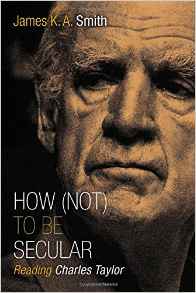 postmodern turn will not be surprised that James K.A. Smith ends his book How (Not) To Be Secular: Reading Charles Taylor (Eerdmans; $16.00) with a reminder that in our current story-laden culture, the gospel will seem more interesting and more plausible to people if it is presented as more than data. Mere facts, religious or otherwise, just don’t draw folks in the 21st century as do winsome stories.
postmodern turn will not be surprised that James K.A. Smith ends his book How (Not) To Be Secular: Reading Charles Taylor (Eerdmans; $16.00) with a reminder that in our current story-laden culture, the gospel will seem more interesting and more plausible to people if it is presented as more than data. Mere facts, religious or otherwise, just don’t draw folks in the 21st century as do winsome stories.
Interestingly, though, as readers of C.S. Lewis know, this was the great scholar’s concern in the middle of the 20th century, as well. It is no surprise, for instance, that Lewis retold the Greek myth about reason and imagination in his classic novel Til We Have Faces. Art Lindsley reminds us of that in his creative book about Lewis’s own conversion in C.S. Lewis’s Case for Christ: Insights from Reason, Imagination and Faith (IVP; $16.00.) Lewis was logical and learned, but he also knew the need for what today we might call the right-brained and imaginative approaches. Lindsley’s book explores that very nicely.
Imagination and Faith (IVP; $16.00.) Lewis was logical and learned, but he also knew the need for what today we might call the right-brained and imaginative approaches. Lindsley’s book explores that very nicely.
And so, James K.A. Smith in his amazing book trying to read the (secular?) signs of the times through the lens of Charles Taylor suggests that those of us interested in offering testimony to the redemptive gospel of Christ within this postmodern and secular age learn to use the arts – literature and music and film and the practice of storytelling. Most of us wouldn’t know it, but the magisterial Taylor book ends there, too — making suggestions about the role of the arts to bear witness. To bear fruit in “the secular age” we need not “dumb down” the truth of the matter, but we can tell it in allusive and storied ways; we need the poets and film-makers and video gamers and cultural creatives. The gospel is really a messy, sprawling, love story, after all, and a large account of the “true story of the whole world” as one favorite intro to the Bible has it.
A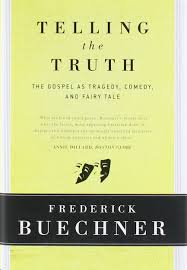 s Frederick Buechner explained so many years ago in what is still a must-read work of his, the gospel is “tragedy, comedy, and fairy-tale.” Certainly a key text for our times, and important for this column, is the 1977 classic, Telling the Truth: The Gospel as Tragedy, Comedy, and Fairy Tale (HarperOne; $17.99.)
s Frederick Buechner explained so many years ago in what is still a must-read work of his, the gospel is “tragedy, comedy, and fairy-tale.” Certainly a key text for our times, and important for this column, is the 1977 classic, Telling the Truth: The Gospel as Tragedy, Comedy, and Fairy Tale (HarperOne; $17.99.)
There is little doubt that we now have to rethink how we present the gospel, and perhaps create new ways of talking about what is often called “apologetics” (the way we defend the Christian faith in conversations with critics and skeptics.)
After the Jamie Smith lecture that we co-hosted with the CCO in Pittsburgh two weeks ago, where he commended a more imaginative approach to postmodern witness, a few in attendance browsed our book display wondering about how we might redefine apologetics if arguing people into the Kingdom doesn’t work as well as it once did (if it ever really did, I often say, although there is considerable evidence [that demands a verdict] that it did.) In our secular age, how do we construe the nature of answering the critics and helping the skeptic?
I know I sold a copy of The End of Apologetics: Christian Witness in a Postmodern Context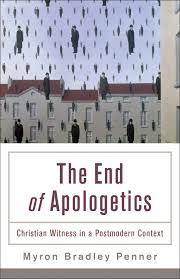 by Myron Bradley Penner (Baker Academic; $19.99) which is exactly about this topic. We showed off a brand new title by the ever-evolving and always interesting James W. Sire: Apologetics Beyond Reason: Why Seeing Really is Believing (IVP Academic; $18.00) which looks at “signals of transcendence” in ways that are alluring and winsome, perhaps not quite postmodern, but still offering an approach that is more than proofs and charts and arguments. It looks very, very useful, and I hope it is widely read.
by Myron Bradley Penner (Baker Academic; $19.99) which is exactly about this topic. We showed off a brand new title by the ever-evolving and always interesting James W. Sire: Apologetics Beyond Reason: Why Seeing Really is Believing (IVP Academic; $18.00) which looks at “signals of transcendence” in ways that are alluring and winsome, perhaps not quite postmodern, but still offering an approach that is more than proofs and charts and arguments. It looks very, very useful, and I hope it is widely read.
Another book that came out a few years go reflecting deeply on questions of evangelism in our postmodern setting is written by a former campus evangelist, actually, and well worth considering for those that want a serious but earnest study: Live to Tell: Evangelism for a Postmodern Age (Brazos Press; $16.00) is by Brad Kallenberg who teaches at the University of Dayton (and who, by the way, has a book on technology that Jamie Smith likes, and a recent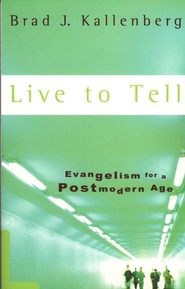 book on Christianity and engineering.)
book on Christianity and engineering.)
It is a bit controversial, but the brilliant scholar and colorful British writer Francis Spufford has written Unapologetic: Why, Despite Everything, Christianity Can Still Make Surprising Emotional Sense (HarperOne; $25.99) and that, too, makes a (compelling?) case less for the historical truth of Christianity, but for the feel of its heft. Is this a silly bit of “truthiness” or something like Lewis’s myth and the “weight of glory”? No matter what you think, it is a much-discussed book, and seems to fit this conversation. Naturally we had it at the Smith lecture, and we stock it gladly in our store, spicy language and all.
Another benefit of this less rationalistic approach to the persuasion of the heart, is that rather than wielding apologetic weapons which invite argument and assent to dogma, relationships move into the foreground and our own stories of 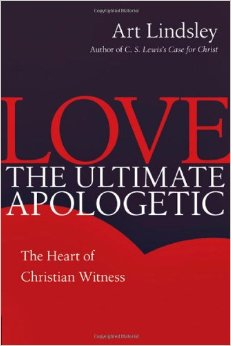 pain and brokenness and experiences of God’s presence become central to our testimony. Even rigorous rationalists have said this at their best, by the way – again, see Art Lindsey’s very lovely and very important study Love, the Ultimate Apologetic: The Heart of Christian Witness (IVP; $15.00) which draws its title from a famous phrase used by Francis Schaeffer. My, my, how I wish folks would read this!
pain and brokenness and experiences of God’s presence become central to our testimony. Even rigorous rationalists have said this at their best, by the way – again, see Art Lindsey’s very lovely and very important study Love, the Ultimate Apologetic: The Heart of Christian Witness (IVP; $15.00) which draws its title from a famous phrase used by Francis Schaeffer. My, my, how I wish folks would read this!
Guys like J.P. Moreland or William Lane Craig and other older school debaters seem rooted in an Enlightenment epistemology and have oodles of books on how to defeat this argument or scale that secular wall or reason through this quandary or doubt, but surely they, too, affirm (even if they don’t say it very often) that relationships matter, that showing love is essential and that there are mysteries that cannot be accounted for in our systems of logic. None of them would disagree with Lindsey, so there is no need to caricature them as one-dimensional brainiacs. Still, the tradition of evidentialist apologetics which specializes in learning to defeat the arguments of the atheists is waning – perhaps because it isn’t as effective these days as it once was.
One book that we had at the CCO book display with Smith isn’t for everyone, but a must-read if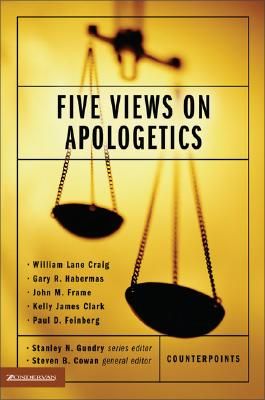 this topic intrigues you. Five Views on Apologetics is compiled and edited by Steven Coward in the Counterpoints series (Zondervan; $19.99.) You know how these work (we have a lot of them, on all manner of topics.) Each author presents his or her view, and then the other four reply. The second portion is the second guy offering his perspective, again, with the other four offering a counterpoint. By the end of the very orderly collection, you’ve learned not only five main viewpoints, but the critiques offered by each of them. What a way to learn!
this topic intrigues you. Five Views on Apologetics is compiled and edited by Steven Coward in the Counterpoints series (Zondervan; $19.99.) You know how these work (we have a lot of them, on all manner of topics.) Each author presents his or her view, and then the other four reply. The second portion is the second guy offering his perspective, again, with the other four offering a counterpoint. By the end of the very orderly collection, you’ve learned not only five main viewpoints, but the critiques offered by each of them. What a way to learn!
In this 398-page paperback you hear from representatives of five views: Classical, Evidential, Presuppositional, Reformed Epistemology and a Cumulative Case view. Who knew there were such profound differences of why and how to defend the faith.
That a friendly and fruitful argument can occur in the context of trusting relationships can be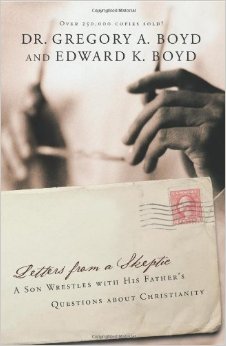 seen in a wonderful book of Greg Boyd’s, who published a fascinating set of letters written back and forth between he and his father, Ed, when the younger Boyd became a Christian (much to the dismay of his secularist father.) Letters From a Skeptic: A Son Wrestles with His Father’s Questions About Christianity (David C. Cook; $14.99) is a regular seller for us here at the shop as we find many folks are drawn to the way this attempts to answer or reply to specific questions from the unbelieving dad, but isn’t merely a handbooks of arguments answered. It is really a story – a father and son, story, even — and it matters that the letters are warm, caring, familiar, even humorous. Dare I say that such projects are perfect for those interested in hearts and minds? That this combines the evidences and arguments responding to honest questions with a winsome and creative backstory? I do recommend it often.
seen in a wonderful book of Greg Boyd’s, who published a fascinating set of letters written back and forth between he and his father, Ed, when the younger Boyd became a Christian (much to the dismay of his secularist father.) Letters From a Skeptic: A Son Wrestles with His Father’s Questions About Christianity (David C. Cook; $14.99) is a regular seller for us here at the shop as we find many folks are drawn to the way this attempts to answer or reply to specific questions from the unbelieving dad, but isn’t merely a handbooks of arguments answered. It is really a story – a father and son, story, even — and it matters that the letters are warm, caring, familiar, even humorous. Dare I say that such projects are perfect for those interested in hearts and minds? That this combines the evidences and arguments responding to honest questions with a winsome and creative backstory? I do recommend it often.
A very interesting book which, again, calls us to a more wholistic account of the hope that lies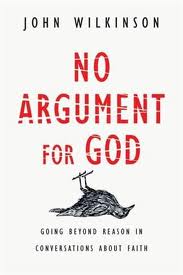 within us is called No Argument for God: Going Beyond Reason in Conversations About Faith by John Wilkinson (IVP; $15.00.) Written by a otherwise conservative evangelical, it understands that mere data doesn’t cut it these days, and the multi-faceted and deeply personal gospel story itself cannot be proven with proofs and evidences and the like. I like Scot McKnight’s discussion of this book when he says,
within us is called No Argument for God: Going Beyond Reason in Conversations About Faith by John Wilkinson (IVP; $15.00.) Written by a otherwise conservative evangelical, it understands that mere data doesn’t cut it these days, and the multi-faceted and deeply personal gospel story itself cannot be proven with proofs and evidences and the like. I like Scot McKnight’s discussion of this book when he says,
Some people know the truth with a cock-sure confidence that is both admirable and annoying. Others have been through the battles of doubt and walk away from the battle with a limp, a limp that reveals that person is still walking straight ahead but with the humility that emerges from deep engagement with God in the shadows of life. John Wilkinson’s book is for the limpers, and it is a wonderful post-apologetics apologetic for an authentic faith.
Anyway, Jamie Smith opened a nice little can of worms in our Hearts & Minds Pittsburgh Summer Lecture by inviting us to story, to winsome, multi-dimensional ways of witness that go beyond proofs and cases and reasons, but also that refuses to reduce Christian evangelism to mere social action or cultural reformation or wordless witness. For Smith, and for us, this question is not about being more liberal or less clear about the first things of the gospel. We do have to find ways to share the gospel without being needlessly pushy or attached to rationalistic strategies that end up being more argumentative than inviting. For love’s sake, we want to be effective and fruitful as we enlist others to join the great adventure of Kingdom living.
I hope these things are of interest to you. If you are a follower of Christ and a member of nearly any kind of church you surely know we are commissioned to share the gospel, to reach out to others with an invitation to join in the movement of God’s work in the world. You know we are to preach the cross, to declare the goodness of the gospel, to announce the Kingdom, speak truth into a hurting world, to be ready to talk about the hope we have.
And I suspect that you, like me – if you are willing to host these thoughts for more than a minute – have great anxiety about it all, fearful that we aren’t doing a very good job at our great commission and not even sure about how to talk about it all. Evangelism? Yikes! In a post-Christian, post-modern, secularized, pluralistic, culture? Double yikes!
* * *
A nd so it was that I was particularly attentive to these things last week, just days after the Smith lecture on “the secular age” and the “nones” and the book-selling conversations about books that offer new approaches to apologetics as I was hanging out for several days in Ocean City NJ with 40 young evangelical college- student leaders from campuses across Pennsylvania and Ohio. As I always discover in my annual pilgrimage there, these students have engaged in fascinating and fruitful conversations throughout the summer with CCO staff and guest teachers, reading good books together, and immersing themselves in the drama of Scripture. They know a bit about how faith is a way of life based on a deep, heart-felt and Biblically-shaped world and life view. They know Christ as the Redeemer King whose grace, as the Keller video curriculum that they watch puts it, “changes everything.” Most wouldn’t call themselves post-modern, I gather, but all are coming of age in the second decade of the 21st century (and are, of course, glued to their smart phones and i-devices.)
nd so it was that I was particularly attentive to these things last week, just days after the Smith lecture on “the secular age” and the “nones” and the book-selling conversations about books that offer new approaches to apologetics as I was hanging out for several days in Ocean City NJ with 40 young evangelical college- student leaders from campuses across Pennsylvania and Ohio. As I always discover in my annual pilgrimage there, these students have engaged in fascinating and fruitful conversations throughout the summer with CCO staff and guest teachers, reading good books together, and immersing themselves in the drama of Scripture. They know a bit about how faith is a way of life based on a deep, heart-felt and Biblically-shaped world and life view. They know Christ as the Redeemer King whose grace, as the Keller video curriculum that they watch puts it, “changes everything.” Most wouldn’t call themselves post-modern, I gather, but all are coming of age in the second decade of the 21st century (and are, of course, glued to their smart phones and i-devices.)
T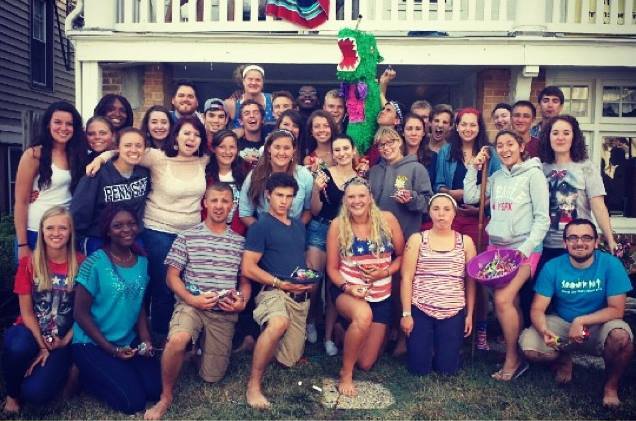 hey come from campuses where they have seen a lot — there are cheesy and simplistic examples of faith all over but they want to offer a better vision and form communities of spiritual integrity. When hostile professors or administrators chastise these young Christians (as they sometimes do!) it is usually because these profs disapprove of the silly faith and reactionary politics they’ve seen; they aren’t the first to be turned off to lively faith by what they’ve seen on the television. When sharp, caring students talk about their work fighting sexual trafficking or global warming and offer their professors Lewis’ Mere Christianity or The Mind of the Maker by Dorothy Sayers or Orthodoxy by Chesterton or the reputable, contemporary scholarship of N.T. Wright, even hardened secular professors can be impressed.
hey come from campuses where they have seen a lot — there are cheesy and simplistic examples of faith all over but they want to offer a better vision and form communities of spiritual integrity. When hostile professors or administrators chastise these young Christians (as they sometimes do!) it is usually because these profs disapprove of the silly faith and reactionary politics they’ve seen; they aren’t the first to be turned off to lively faith by what they’ve seen on the television. When sharp, caring students talk about their work fighting sexual trafficking or global warming and offer their professors Lewis’ Mere Christianity or The Mind of the Maker by Dorothy Sayers or Orthodoxy by Chesterton or the reputable, contemporary scholarship of N.T. Wright, even hardened secular professors can be impressed.
I was once told by a special ed prof at my alma mater (IUP) that if I didn’t believe that the scientific method was the “only way to truth” — “Yes, Truth with a capitol T,” she scolded – “you have no business being in a modern university.” This kind of hostile scientism and naturalistic philosophy is still prevalent on campus, but, I suspect, less so, here amidst the postmodern turn.
scientific method was the “only way to truth” — “Yes, Truth with a capitol T,” she scolded – “you have no business being in a modern university.” This kind of hostile scientism and naturalistic philosophy is still prevalent on campus, but, I suspect, less so, here amidst the postmodern turn.
There are a lot of books that cover that topic — worldviews in the university, scholarly freedom, academic discipleship.
But, let’s be clear: these young students working in ocean side shops and boardwalk joints, cleaning hotels and slicing cold cuts and cheese at the local deli, or making smoothies for the tourists aren’t talking with hostile intellectuals this summer. They are talking with co-workers and townies, street people and tourists, ordinary people from all over the country and world.
And, boy, do they enjoy being hospitable. Every evening they would introduce whoever they happened to bring home for the big communal supper — a co-worker from Bulgaria, a guy who plays Frisbee on the beach, a boss from the morning shift at the bakery. Some of these guests to the OCBP house inevitably wondered over to the book room I had set up in the living room, and these students got me talking with their new friends. What did I have that would convince a skeptic, that would show why Christianity makes sense, that would answer some of the questions they had?
A big artful novel about meaning or a postmodern guide to wonder and mystery didn’t seem to scratch where it itched. These curious young adults – drawn in by the community and hospitality and laughter so evident among these joyous, loud lovers of Jesus – were already leaning in, eager to know what was going on among them. Maybe they would take up a pro/con study like the Greg Boyd book, mentioned above, or maybe a classic like C.S. Lewis. One guest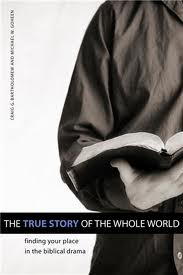 really wanted to know what we meant by the Big Story of the Bible, and we gave her The True Story of the Whole World: Finding Your Place in the Biblical Narrative by Michael Goheen and Craig Bartholomew (Faith Alive; $15.99) the abridged version of their bigger Drama of Scripture, just out in a new expanded, revised edition (Baker; $22.99.) I also like to show the edgy, smallish book called The Big Story: How the Bible Makes Sense of Life by Justin Buzzard (Moody; $13.99) that gets at this in a fun way, too – a Bible overview that shows its central plot and invites us to see our lives as making sense as we enter that plot-line.
really wanted to know what we meant by the Big Story of the Bible, and we gave her The True Story of the Whole World: Finding Your Place in the Biblical Narrative by Michael Goheen and Craig Bartholomew (Faith Alive; $15.99) the abridged version of their bigger Drama of Scripture, just out in a new expanded, revised edition (Baker; $22.99.) I also like to show the edgy, smallish book called The Big Story: How the Bible Makes Sense of Life by Justin Buzzard (Moody; $13.99) that gets at this in a fun way, too – a Bible overview that shows its central plot and invites us to see our lives as making sense as we enter that plot-line.
How do we find ourselves in the story of God? One gal in the house told how Blue Like Jazz: Nonreligious Thoughts on Christian Spirituality by Donald Miller (Thomas Nelson; $16.99) changed her life; perhaps you know the famous first line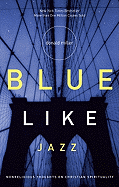 of those reflections: “I never liked jazz music because jazz music doesn’t resolve. I used to
of those reflections: “I never liked jazz music because jazz music doesn’t resolve. I used to
not like God because God didn’t resolve. But that was before any of this
happened.” I of course pointed then to A Thousand Miles in a Million Years: How I Learned to Live a Better Story (Thomas Nelson; $16.99) Miller’s wonderfully enjoyable narrative about making his life a true narrative (with an assist from Bob Goff). We had all of his books there.
Of course, there are so many great memoirs, stories of folks making sense of their lives, and these are often good for “pre-evangelism” and nudges towards developing a religious vocabulary to name one’s longings. Even those that are not exactly about Christian conversion are helpful, I think, to let a person know that she is not alone, not the only one trying to figure out these things. Perhaps one day I’ll do a list of a few of my favorite memoirs about searching for faith.
At least one young women pressed me for specific answers, though, and she wanted a book that responded to the standard challenges raised against Christainity. I think she eventually took Th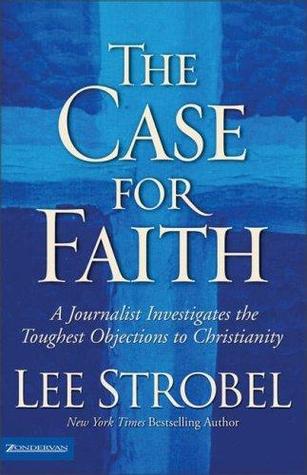 e Case for Faith: A Journalist Investigates the Toughest Objections to Christianity by Lee Strobel (Zondervan; $15.99.) We also had Strobel’s The Case for Christ which is excellent for those wondering if the gospels accounts are reliable, if Christ could be who He said He was, if the claims made about him hold water. The Case for Creator is, like the others, an anthology of meaty but readable chapters, in this case, authored by scientists who see God’s design fingerprinted onto the scientific facts of the world. These, though, were not her primary questions – so we shifted to the ones in Case for Faith — if God is good, why is there so much suffering, did Jesus really say He was the only way (and what is with that?) Do miracles really happen? Why have Christians been so violent and vile throughout the ages? These questions about not just the truth claims about Christ but about this other stuff, and it seemed like it would be helpful.
e Case for Faith: A Journalist Investigates the Toughest Objections to Christianity by Lee Strobel (Zondervan; $15.99.) We also had Strobel’s The Case for Christ which is excellent for those wondering if the gospels accounts are reliable, if Christ could be who He said He was, if the claims made about him hold water. The Case for Creator is, like the others, an anthology of meaty but readable chapters, in this case, authored by scientists who see God’s design fingerprinted onto the scientific facts of the world. These, though, were not her primary questions – so we shifted to the ones in Case for Faith — if God is good, why is there so much suffering, did Jesus really say He was the only way (and what is with that?) Do miracles really happen? Why have Christians been so violent and vile throughout the ages? These questions about not just the truth claims about Christ but about this other stuff, and it seemed like it would be helpful.
Allow me a brief observation, a quick story from OCBP, and then a random book list of titles I want to tell you about. This list isn’t anywhere near comprehensive — we have a lot of these kinds of books in our shop, books on apologetics (modern and postmodern), books on doing evangelism, and books for seekers or those with significant doubts. These are some good ones to get you started.
AN OBSERVATION
I am really, really moved when I am around people who have a passion to talk about how the Divine works in their lives, about the good news that the Kingdom is coming, who share about the need and possibility for others to enter into a relationship with their Creator God by way of the life, death and resurrection of Jesus the Christ. In other words, to see evangelism done well is a great joy, and is so much better than my more common shtick about how bad pushy evangelists can be.
the life, death and resurrection of Jesus the Christ. In other words, to see evangelism done well is a great joy, and is so much better than my more common shtick about how bad pushy evangelists can be.
That some do it wrong and say it badly – no small thing as they hurt people and confuse some and make ministry harder for all of us due to their unfriendly and injudicious style – is frankly not nearly as interesting as seeing how some do it right. I wonder why so many churches nearly pride themselves that they don’t do evangelism? Doesn’t it get a bit boring just saying what we don’t do?
Being with the OCBP kids, watching them offer hospitality and grace and gospel to friends and strangers is remarkable. Please don’t throw out the idea of evangelism and the possibility of seekers becoming Christians just become some religious groups overplay it. If you’ve not shed tears lately hearing stories of God-caused transformation, pray for a chance to experience it.
A TEAR-FILLED STORY
One athletic, young sophomore guy broke down in tears as he told us about what happened that day at work, exclaiming how it was “so cool” that he got to say a prayer to receive God’s salvation for and with a co-worker; the OCBP student’s college-age co-worker agreed his life was messed up and that he needed God. He knew very little about the Bible or the gospel, and Gabe “told him everything” about the grand Scriptural story (from Genesis to Revelation: they even took a bathroom break in the middle), about creation, fall, redemption, about law and grace, about hope and new creation. Gabe talked about his own trust in Jesus and offered his buddy the assurance of salvation, the presence of the Holy Spirit within him, and a new quality of life, starting right then and there. Picture these two college men praying out loud together in a boat rental warehouse as one entered into the Kingdom of God for the first time; hearing about it brought many of us to our knees.
Does this – this storied report of one person leading another to Christ, of somebody praying for salvation for one unfamiliar with the good news – happen in your church? Perhaps it does, but in some, it just doesn’t. This is not the time to speculate about why that is, but for many of us, we just don’t quite know how to share about the deepest things; we just don’t feel safe or confident to go there. Sometimes we don’t offer good news because we think that only fundamentalist weirdos do that.
BOOKS REALLY CAN HELP
As always, reading books can help. This is not the only answer, of course, but reading books about evangelism, the art of apologetics, and having resources to answer questions, while learning how to talk comfortably about deep things can really give you new confidence and inspire you to take steps towards sharing your faith when appropriate. Read them to see how it’s done, to learn the vocabulary of this art, and to know you aren’t weird for desiring to tell your story, proclaim the gospel, and invite others into the community of people that live the story you believe to be true.
BOOKS ABOUT SHARING YOUR FAITH
A Christian View of Hospitality: Expecting Surprises Michele Hershberger (Herald Press) $12.99 I suppose Making Room by Christine Pohl is still the semi-scholarly classic on the topic, but this is the go-to, must-read, amazingly good resource for anyone who wants to live in such a way that they are open to God’s work day by day, eager for surprises, and open to sharing life with those who come along. One of the speakers at OCBP — the indomitable funny guy Dr. Terry Thomas — spoke highly of this, and we sold out of it. This really is a starting place to think well about Kingdom evangelism: living out of grace in a way that is open to giving, open to others, breaking down hostilities and open to sharing life. Get this lovely, serious book today — you won’t regret it!
Christian View of Hospitality: Expecting Surprises Michele Hershberger (Herald Press) $12.99 I suppose Making Room by Christine Pohl is still the semi-scholarly classic on the topic, but this is the go-to, must-read, amazingly good resource for anyone who wants to live in such a way that they are open to God’s work day by day, eager for surprises, and open to sharing life with those who come along. One of the speakers at OCBP — the indomitable funny guy Dr. Terry Thomas — spoke highly of this, and we sold out of it. This really is a starting place to think well about Kingdom evangelism: living out of grace in a way that is open to giving, open to others, breaking down hostilities and open to sharing life. Get this lovely, serious book today — you won’t regret it!
Sp eak: How Your Story Can Change the World Nish Weiseth (Zondervan) $14.99 This new book is not primarily or exclusively about evangelism, but just about discovering the power of sharing your story and learning the grace to hear the stories of others. Speak is a call for grace, openness, and vulnerability, encouraging church folk to share their own stories of transformation. She is all about building bridges, being an advocate for social change, for investing in others in ways that makes disciples and builds the Kingdom. Weiseth is a young blogger and founder of A Deeper Story, a collaborative website where over sixty writers share their stories in order to address important issues within Christianity and the culture at large. There is a beautiful foreword by memoirist Shauna Niequist.
eak: How Your Story Can Change the World Nish Weiseth (Zondervan) $14.99 This new book is not primarily or exclusively about evangelism, but just about discovering the power of sharing your story and learning the grace to hear the stories of others. Speak is a call for grace, openness, and vulnerability, encouraging church folk to share their own stories of transformation. She is all about building bridges, being an advocate for social change, for investing in others in ways that makes disciples and builds the Kingdom. Weiseth is a young blogger and founder of A Deeper Story, a collaborative website where over sixty writers share their stories in order to address important issues within Christianity and the culture at large. There is a beautiful foreword by memoirist Shauna Niequist.
T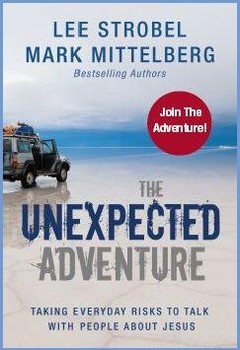 he Unexpected Adventure: Taking Everyday Risks to Talk with People About Jesus Lee Strobel & Mark Mittelberg (Zondervan) $14.99 I often show this book as a great starter book on evangelism — it invites you to pray for 40 days, each day asking God to give you the eyes to see opportunities to serve others, speak about spiritual things, or say something about your faith in Jesus. Then, the authors report their own experiment in faith, with a daily story of something that happened to them. These are great case studies — some pretty dramatic, most not, all quite interesting. Almost like a daily devotional, I am sure you will be touched by some of these occurrences that seem like divine appointments, nice episodes that remind us that ordinary, daily opportunities abound. This is a truly helpful books, lovely to read and inspiring to apply.
he Unexpected Adventure: Taking Everyday Risks to Talk with People About Jesus Lee Strobel & Mark Mittelberg (Zondervan) $14.99 I often show this book as a great starter book on evangelism — it invites you to pray for 40 days, each day asking God to give you the eyes to see opportunities to serve others, speak about spiritual things, or say something about your faith in Jesus. Then, the authors report their own experiment in faith, with a daily story of something that happened to them. These are great case studies — some pretty dramatic, most not, all quite interesting. Almost like a daily devotional, I am sure you will be touched by some of these occurrences that seem like divine appointments, nice episodes that remind us that ordinary, daily opportunities abound. This is a truly helpful books, lovely to read and inspiring to apply.
I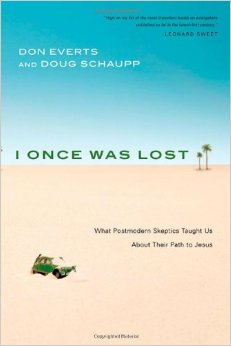 Once Was Lost: What Postmodern Skeptics Taught Us About the Path to Jesus Don Everts & Doug Schaupp (IVP) $15.00 I raved about this when it came out several years ago and hope you know of it. These guys wondered how young collegiate actually made the journey towards following Jesus and interviewed to over two thousand people who had come to Christ during their college years (mostly through IFCF.) There were, not so surprisingly, barriers to overcome, relationships that mattered, stages – ” postmodern evangelism is a mysterious and organic process that nevertheless goes through discernible phrases, as people cross thresholds from distrust to trust, from complacency to curiosity, and from meandering to seeking.” This is not an excuse to refrain from talking clearly about things that matter, but it is a reminder that this usually takes time, that there are factors that influence how people shift in their perspectives and become open to the gospel. If you are concerned that old-school evangelistic strategies no longer work, if you want to explore intentional “relational evangelism” (especially among those who are skeptical and un-churched) this little book is a gold mine of ideas and winsome guidance.
Once Was Lost: What Postmodern Skeptics Taught Us About the Path to Jesus Don Everts & Doug Schaupp (IVP) $15.00 I raved about this when it came out several years ago and hope you know of it. These guys wondered how young collegiate actually made the journey towards following Jesus and interviewed to over two thousand people who had come to Christ during their college years (mostly through IFCF.) There were, not so surprisingly, barriers to overcome, relationships that mattered, stages – ” postmodern evangelism is a mysterious and organic process that nevertheless goes through discernible phrases, as people cross thresholds from distrust to trust, from complacency to curiosity, and from meandering to seeking.” This is not an excuse to refrain from talking clearly about things that matter, but it is a reminder that this usually takes time, that there are factors that influence how people shift in their perspectives and become open to the gospel. If you are concerned that old-school evangelistic strategies no longer work, if you want to explore intentional “relational evangelism” (especially among those who are skeptical and un-churched) this little book is a gold mine of ideas and winsome guidance.
G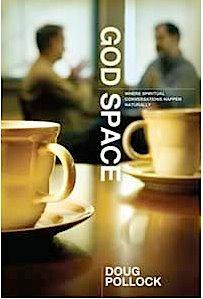 od Space: Where Spiritual Conversations Happen Naturally Doug Pollock (Group) $14.99 Ahh, this is one of the best little books on evangelism of which we know. It reminds us that conversations about spiritual things can happen naturally, and that we certainly do not want to be pushy or weird. OCBP staff and students about whom I’ve written really love it, and several explained that they felt it gave them a great framework and vision to learn to talk about the deepest things in ways that lead to a natural telling of what God is doing in their lives and the nature of the gospel. I’ve said it before, but I do really, really recommend this short, insightful book. Nice cover, too!
od Space: Where Spiritual Conversations Happen Naturally Doug Pollock (Group) $14.99 Ahh, this is one of the best little books on evangelism of which we know. It reminds us that conversations about spiritual things can happen naturally, and that we certainly do not want to be pushy or weird. OCBP staff and students about whom I’ve written really love it, and several explained that they felt it gave them a great framework and vision to learn to talk about the deepest things in ways that lead to a natural telling of what God is doing in their lives and the nature of the gospel. I’ve said it before, but I do really, really recommend this short, insightful book. Nice cover, too!
O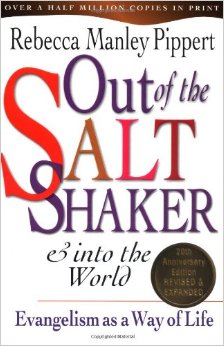 ut of the Saltshaker and Into the World: Evangelism as a Way of Life Becky Pippert (IVP) $17.00 Well, this is certainly one of our all time biggest sellers here at the shop – we hosted Becky here in our early years to help us learn about effective, faithful, relational evangelism. She is an amazing person, with tons of great stories, and much solid insight. This book is a true classic, and if you haven’t read it, I beg you to. I think it is that good.
ut of the Saltshaker and Into the World: Evangelism as a Way of Life Becky Pippert (IVP) $17.00 Well, this is certainly one of our all time biggest sellers here at the shop – we hosted Becky here in our early years to help us learn about effective, faithful, relational evangelism. She is an amazing person, with tons of great stories, and much solid insight. This book is a true classic, and if you haven’t read it, I beg you to. I think it is that good.
“I Can” Evangelism: Taking the “I Can’t” Out of Sharing Your Faith Elisa Morgan (Revell) $12.99 I have made many lists of evangelism books in the past, and enjoy explaining this or that one. There are those that are theologically mature and profound (please, please check out The Heart of Evangelism and Learning Evangelism From Jesus by Jerram Barrs [Crossway; $16.99/$18.99] for important, fabulous Biblical foundations) and then there are those that just give us that nudge, that invitation, the simple suggestions that “you can do this.” I read this almost in one sitting when it had been released under a different title and delighted that they re-issued it with a new title; this edition is now out of print, too, but we have a few left. It is so clear and encouraging and am glad to recommend it will I can. It isn’t too simplistic nor is it cheesy or pushy. It is helpful, motivating, and very, very nice. Elisa Morgan has been through a lot, her life is a great testimony, and this book can help you, I’m sure.
Faith is Like Skydiving And Other Memorable Images for Dialogue with Seekers and Skeptics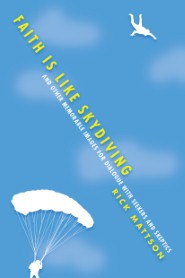 Rick Mattson (IVP) $15.00 I love this book! It is chock full of stories and good (and, well, not so good) examples of Mattson’s own efforts to share the gospel, mostly on college campuses. These honest reports from his own checkered efforts are worth the price of the book, but the real point is that he has learned to us various metaphors, stories, and simple analogies to communicate this or that complicated point or theological truth. You’ve most likely heard some of the objections to the faith that Mattson tells us about, and you may even have heard some of his winsome, clever replies. But a lot of these were new to me, and I will store a number a way, I’m sure, to pull out when it may be instructive. Please know that he isn’t all about just mimicking trite illustrations and he makes a passionate case for caring for each conversation partner, for being honest and candid about the weight of many painful questions and challenges to faith. But yet, being prepared with some helpful analogies, some illustrations to us, some images to draw on is fantastic. This is one of the most helpful book about apologetics I’ve seen in a while, packed with takeaways, loaded with stories, and written by an author with lots of experience, written in a caring, honest tone. Nice!
Rick Mattson (IVP) $15.00 I love this book! It is chock full of stories and good (and, well, not so good) examples of Mattson’s own efforts to share the gospel, mostly on college campuses. These honest reports from his own checkered efforts are worth the price of the book, but the real point is that he has learned to us various metaphors, stories, and simple analogies to communicate this or that complicated point or theological truth. You’ve most likely heard some of the objections to the faith that Mattson tells us about, and you may even have heard some of his winsome, clever replies. But a lot of these were new to me, and I will store a number a way, I’m sure, to pull out when it may be instructive. Please know that he isn’t all about just mimicking trite illustrations and he makes a passionate case for caring for each conversation partner, for being honest and candid about the weight of many painful questions and challenges to faith. But yet, being prepared with some helpful analogies, some illustrations to us, some images to draw on is fantastic. This is one of the most helpful book about apologetics I’ve seen in a while, packed with takeaways, loaded with stories, and written by an author with lots of experience, written in a caring, honest tone. Nice!
T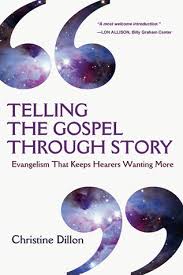 elling the Gospel Through Story: Evangelism That Keeps Hearers Wanting More Christine Dillon (IVP) $15.00 Christine is an OMF missionary from Australia and knows that “everybody loves a good story.” This is a thorough guide to learning how to tell the Bible stories as stories and how to us this “storying the Bible” as a tool for good conversations and evangelism. I like what Sean Gladding, the author of the fantastic The Story of God, the Story of Us says, “Christian Dillon calls us to recapture the beauty, power and mystery of storying the gospel, and does so with the wisdom of a practitioner.” This is great for anyone who wants to reach out to others in evangelistic hopes, but also for Sunday school teachers, educators or preachers. Very impressive, loaded with insight and guidance, and a good study guide, too.
elling the Gospel Through Story: Evangelism That Keeps Hearers Wanting More Christine Dillon (IVP) $15.00 Christine is an OMF missionary from Australia and knows that “everybody loves a good story.” This is a thorough guide to learning how to tell the Bible stories as stories and how to us this “storying the Bible” as a tool for good conversations and evangelism. I like what Sean Gladding, the author of the fantastic The Story of God, the Story of Us says, “Christian Dillon calls us to recapture the beauty, power and mystery of storying the gospel, and does so with the wisdom of a practitioner.” This is great for anyone who wants to reach out to others in evangelistic hopes, but also for Sunday school teachers, educators or preachers. Very impressive, loaded with insight and guidance, and a good study guide, too.
Q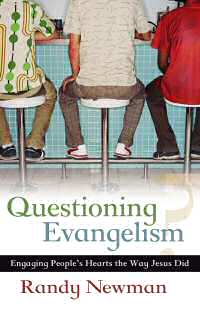 uestioning Evangelism: Engaging People’s Hearts the Way Jesus Did Randy Newman (Kregel) $13.99 This award-winning book is a wonderful guide to listening well and asking good questions as one engages in apologetics and evangelism. There are imagined scripts and case studies of ways we can ask probing questions of those with whom we are in conversation. At times, Newman’s bias is a bit conservative (when he is showing how to have fruitful dialogues about social issues) and although he is all about inviting relationally-sensitive discussions, his hope is to offer gospel news and offer compelling Biblical answers of a fairly conventional sort. Gladly, there is a wonderful chapter on having compassion, which is fantastic, and a final essay on unanswered questions, which is very nice.
uestioning Evangelism: Engaging People’s Hearts the Way Jesus Did Randy Newman (Kregel) $13.99 This award-winning book is a wonderful guide to listening well and asking good questions as one engages in apologetics and evangelism. There are imagined scripts and case studies of ways we can ask probing questions of those with whom we are in conversation. At times, Newman’s bias is a bit conservative (when he is showing how to have fruitful dialogues about social issues) and although he is all about inviting relationally-sensitive discussions, his hope is to offer gospel news and offer compelling Biblical answers of a fairly conventional sort. Gladly, there is a wonderful chapter on having compassion, which is fantastic, and a final essay on unanswered questions, which is very nice.
G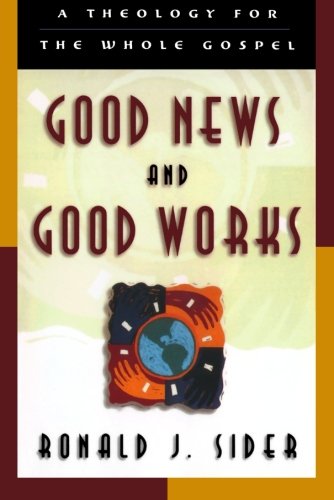 ood Words and Good Works: A Theology of the Whole Gospel Ronald J. Sider (Baker) $20.00 I often remark how very important this book is, and how carefully Ron explores, compares, contrasts, differentiates and wisely and helpfully studies different models and views of evangelism. He gives a wholistic Biblical vision of what evangelism is and isn’t, and it is as important for mainline denominational “social gospel” folk as it is for evangelical “evangelistic” folk. As you may know, Ron has been a leader of evangelical social action, calling for radical lifestyles of generous justice, service to the poor, peacemaking and the like. And yet, he continues to be interested in his earliest passion — to be an apologist and defend the credibility of faith among the intellectuals.
ood Words and Good Works: A Theology of the Whole Gospel Ronald J. Sider (Baker) $20.00 I often remark how very important this book is, and how carefully Ron explores, compares, contrasts, differentiates and wisely and helpfully studies different models and views of evangelism. He gives a wholistic Biblical vision of what evangelism is and isn’t, and it is as important for mainline denominational “social gospel” folk as it is for evangelical “evangelistic” folk. As you may know, Ron has been a leader of evangelical social action, calling for radical lifestyles of generous justice, service to the poor, peacemaking and the like. And yet, he continues to be interested in his earliest passion — to be an apologist and defend the credibility of faith among the intellectuals.
Despite that interest, Ron was called by the Lord He loved to work raising the consciousness of evangelicals about racial injustice, urban poverty, world hunger, the need for sustainable economics. Through these activist networks he helped forge (international) conversations about the relationship between word and deed, helping craft declarations at Lausanne about what we mean by witness, evangelism and by social action. This title is one of the very best books of the late 20th century explaining why we need both personal evangelism and social action, words and deeds, good news and good policy, and also how we ought not conflate or confuse them (even as they are deeply intertwined.) A great book on the Biblical vision of the Kingdom of God, with an inspiring tone and some healthy advice — it simply has to be listed here as we offer resources for thinking about relevant evangelism in our time. This showed, years ago, now, that we must “show” and “tell” and that our words must point to a real community living differently — vital ideas for anyone thinking about fruitful, Biblical, evangelism in the 21st century.
N udge: Awakening Each Other to the God Who’s Already There Leonard Sweet (David C. Cook) $19.99 There are dozens and dozens of books in our evangelism section, but I’d be remiss not to name this one. Len is a wonderful cultural analyst, a critic of mean-spirited or dull views of faith and evangelism, but also one who has great, great passion for creatively offering good words and good news to people shaped by our postmodern times. He is upbeat, always quoting fascinating episodes from history or great writers, and is a joy to learn from. Len is less critical of postmodernity than some, and has a winsome ability to playfully make connections between our crazy times and the crazy good news of a God who Is. We can nudge one another along the way — that’s it! This book is a provocative one helping you learn some new ways to think about evangelism, offering new energy and Spirit-given confidence to help folks make connections with Christ Himself by using our many senses. Yes!
udge: Awakening Each Other to the God Who’s Already There Leonard Sweet (David C. Cook) $19.99 There are dozens and dozens of books in our evangelism section, but I’d be remiss not to name this one. Len is a wonderful cultural analyst, a critic of mean-spirited or dull views of faith and evangelism, but also one who has great, great passion for creatively offering good words and good news to people shaped by our postmodern times. He is upbeat, always quoting fascinating episodes from history or great writers, and is a joy to learn from. Len is less critical of postmodernity than some, and has a winsome ability to playfully make connections between our crazy times and the crazy good news of a God who Is. We can nudge one another along the way — that’s it! This book is a provocative one helping you learn some new ways to think about evangelism, offering new energy and Spirit-given confidence to help folks make connections with Christ Himself by using our many senses. Yes!
U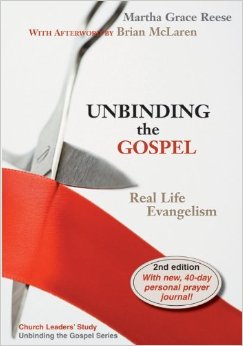 nbinding the Gospel: Real Life Evangelism Martha Grace Reese (Chalice Press) $20.99 For the last few years, we have happily sold this (or the three companion volumes) at nearly every mainline denominational event at which we sold books. With rave endorsements from The Christian Century, the Congregations newsletter of the Alban Institute, respected Protestant leaders such as the former President of the UCC, it has snowballed into a best-seller, used in 15,000 congregations in more than 50 denominations.
nbinding the Gospel: Real Life Evangelism Martha Grace Reese (Chalice Press) $20.99 For the last few years, we have happily sold this (or the three companion volumes) at nearly every mainline denominational event at which we sold books. With rave endorsements from The Christian Century, the Congregations newsletter of the Alban Institute, respected Protestant leaders such as the former President of the UCC, it has snowballed into a best-seller, used in 15,000 congregations in more than 50 denominations.
Evangelical scholars have raved, too. Dick Peace, formerly of GCTS, now at Fuller, says “This should be required reading in all our mainline churches.” George Hunter (Distinguished Professor of Evangelism and Church Growth at Asbury Theological Seminary and a respected author of many books on relevant, contextualized evangelism) says “I expect Unbinding the Gospel Series to move [thousands of] churches into their first invitational foray into the community in anyone’s memory.”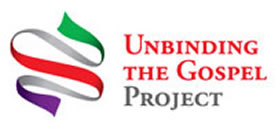
The four volumes (Unbinding the Gospel, Unbinding Your Heart, Unbinding Your Church, and Unbinding Your Soul) came out of Reese’s research with a national Lilly Endowment project on evangelism and congregational transformation. One reviewer was glad that they use “humor, whimsy and joy” and were “written to provoke, to tease, and to charm us back into telling our story.” We have written about these before, but glad to list ’em here again.
T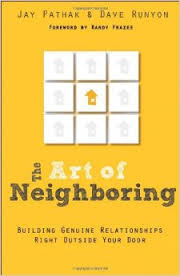 he Art of Neighboring: Building Genuine Relationships Right Outside Your Door Jay Pathak & Dave Runyon (Baker) $14.99 There is, assume you know, a national movement to renew local communities. Government and non-profits are all learning to care about the local, and increasingly churches are being missional in ways that start with their own neighborhoods. Building lasting relationships with those around us ought not seem like rocket science and many of us may think we don’t need a handbook to making a difference in our own locales. But, alas, it just doesn’t seem to happen these days, and this book is “thought-provoking and practical” (as Margaret Feinberg put it.)
he Art of Neighboring: Building Genuine Relationships Right Outside Your Door Jay Pathak & Dave Runyon (Baker) $14.99 There is, assume you know, a national movement to renew local communities. Government and non-profits are all learning to care about the local, and increasingly churches are being missional in ways that start with their own neighborhoods. Building lasting relationships with those around us ought not seem like rocket science and many of us may think we don’t need a handbook to making a difference in our own locales. But, alas, it just doesn’t seem to happen these days, and this book is “thought-provoking and practical” (as Margaret Feinberg put it.)
The Mayor of Duluth, Minnesota writes,
“The Art of Neighboring has united many churches in Duluth and has helped us to launch a neighboring movement. I’m excited about the influence it is having in my city and its potential to impact other cities around the county.”
Even serious neighborhood scholars and community-based sociologist like John McKnight the co-director of the Asset Based Community Development Institute at Northwestern University have endorsed it. Not many books draw on old-school evangelism classics (Master Plan of Evangelism, say, or the work of Dawson Trotman) as well as mature analysis like Exclusion and Embrace by Volf or the community organizing stuff of Robert Lupton. Check out their website for more info.
T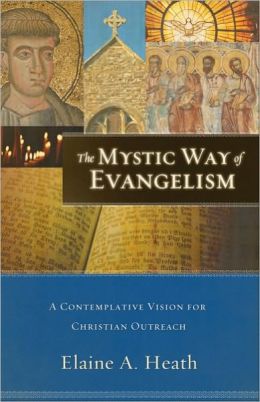 he Mystic Way of Evangelism: A Contemplative Vision for Christian Outreach Elaine Hearth (Baker Academic) $19.99 I have written about this before, and hold it up and show it off often, in part because it is so very interesting, a curious, refreshing and profound perspective to help the church get out of its “dark night of the soul” but also because it is just so very rare to find a truly new angle and approach to sharing one’s story in evangelism. This author, a professor of evangelism at Perkins School of Theology, draws on the usual suspects — Merton, Nouwen, Gerald May, Richard Rohr and the like. (Ahh, but also Wendell Berry and Kalistos Ware, Bonaventure and Wesley.) This includes theory and practice, using the classic spiritual formation lenses and the teaching of the mystics to helps us gain a more holistic view of the gospel and a helpful way to invite people into the deep waters of true spirituality. As we ponder what sorts of approaches to evangelism which may bear fruit in this postmodern era, maybe connecting with the hunger of spiritual encounter which runs so deep these days is a more than a clever idea, but essential.
he Mystic Way of Evangelism: A Contemplative Vision for Christian Outreach Elaine Hearth (Baker Academic) $19.99 I have written about this before, and hold it up and show it off often, in part because it is so very interesting, a curious, refreshing and profound perspective to help the church get out of its “dark night of the soul” but also because it is just so very rare to find a truly new angle and approach to sharing one’s story in evangelism. This author, a professor of evangelism at Perkins School of Theology, draws on the usual suspects — Merton, Nouwen, Gerald May, Richard Rohr and the like. (Ahh, but also Wendell Berry and Kalistos Ware, Bonaventure and Wesley.) This includes theory and practice, using the classic spiritual formation lenses and the teaching of the mystics to helps us gain a more holistic view of the gospel and a helpful way to invite people into the deep waters of true spirituality. As we ponder what sorts of approaches to evangelism which may bear fruit in this postmodern era, maybe connecting with the hunger of spiritual encounter which runs so deep these days is a more than a clever idea, but essential.
T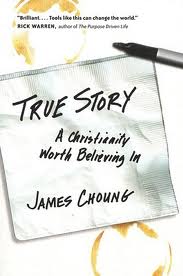 rue Story: A Christianity Worth Believing In James Choung (IVP) $16.00 With the coffee cup stains on the napkin on the front, you get that this is pitched to a younger, hipper crowd – indeed, the “likewise” imprint of IVP is missional, authentic, edgy, even. This is a great, great book for folks — the young adult crowd, or those eager to be challenged to think younger — wanting fresh ways to think about what it means to invite people into the story of faith, especially those that are aware that the gospel has been grown oily in the hands of hucksters and weird on the tongues of ideologues. Yes, if you are wary of sharing your own faith journey because of how badly it has often been done, and long for a sane and sensible -and maybe even creative and exciting – way of doing this kinds of work, this book is for you.
rue Story: A Christianity Worth Believing In James Choung (IVP) $16.00 With the coffee cup stains on the napkin on the front, you get that this is pitched to a younger, hipper crowd – indeed, the “likewise” imprint of IVP is missional, authentic, edgy, even. This is a great, great book for folks — the young adult crowd, or those eager to be challenged to think younger — wanting fresh ways to think about what it means to invite people into the story of faith, especially those that are aware that the gospel has been grown oily in the hands of hucksters and weird on the tongues of ideologues. Yes, if you are wary of sharing your own faith journey because of how badly it has often been done, and long for a sane and sensible -and maybe even creative and exciting – way of doing this kinds of work, this book is for you.
First, you should know much of it is written as a novel – a parable, if you will. Caleb is a disillusioned believer and Anna is a hostile skeptic yet they both wrestle with the plausibility of the Christina story in a world of pain and suffering. They ask each other tough questions about what Jesus came to do and what Christianity is supposed to be about.
As activist and joyful prophet Shane Claiborne writes of it, “This book is an urgent cry not to settle for the dream of America over the dream of God, nor to allow cynicism to suffocate the hope that another world is possible.” Yep, this is a cleverly construed story within a book ruminating on new ways to explain the Kingdom of God to others, to invite folks to a new story, and to show forth a gospel that is true and worthy. Maybe this is the kind of (post-modern?)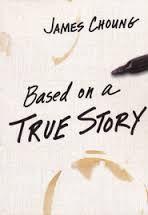 apologetic that we are searching for. Certainly it is a creative and interesting way to present the gospel.
apologetic that we are searching for. Certainly it is a creative and interesting way to present the gospel.
And, as the napkin on the cover alludes, there is a scene where some stuff is scribbled — and you can even by the little booklet, the story as explained in the drawing. They make nice discussion tools to use in appropriate settings. ($1.25.) Fantastic!
R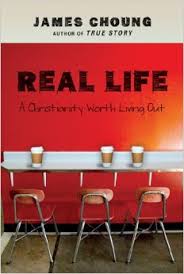 eal Life: A Christianity Worth Living Out James Choung (IVP) $17.00 After the fun success of True Story, James Choung then wrote a sequel of sorts, a book for those who are mentoring others, discipling and training young believers in the journey of faith. It introduces new characters, but is similar — a mix of a novel and an evaluation of what is going on, and how the characters learn to live their faith. And there are diagrams — woo-hoo. This one, too, is so, so helpful for anyone who needs trained (or retrained, as the case may be) in learning to do ministry in our postmodern age.
eal Life: A Christianity Worth Living Out James Choung (IVP) $17.00 After the fun success of True Story, James Choung then wrote a sequel of sorts, a book for those who are mentoring others, discipling and training young believers in the journey of faith. It introduces new characters, but is similar — a mix of a novel and an evaluation of what is going on, and how the characters learn to live their faith. And there are diagrams — woo-hoo. This one, too, is so, so helpful for anyone who needs trained (or retrained, as the case may be) in learning to do ministry in our postmodern age.
Here is what it says in its promo:
Engineer Stephen wants to encourage his younger colleague Jared in his spiritual journey, but both feel at a loss. Stephen’s friend Bridget offers insights on how Boomers, Xers, Millennials and younger generations approach spiritual questions, with implications for discipleship, community and service. Together they walk through deepening stages of faith as they discern how God is calling them to live. Join Stephen, Bridget and Jared on their journey of following Jesus, as they discover what it means to move from skeptic to world-changer. And find new pathways for Christian discipleship and disciple-making in a world yearning for hope.
B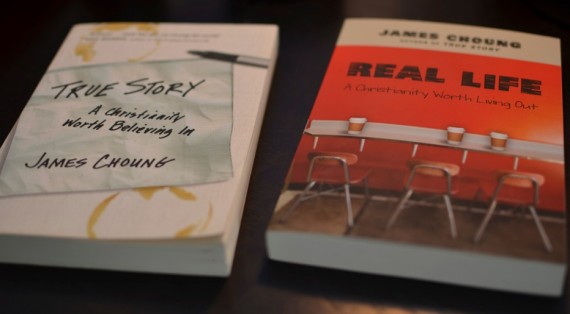 oth True Story and Real Life are fabulous examples of the fresh, creative, and passionate work being done by a new generation of campus ministers and authentic, caring evangelists. If you are in a fairly traditional setting in a conventional church, you may think these are not for you. Let me suggest otherwise: surely you know un-churched or de-churched young adults with whom you need to connect. So, you could use these with them, perhaps. I bet if you’ve been at this a while in a fairly standard, older church setting, maybe you could use some fresh assistance in reaching out to those who most likely don’t come to your church. Even if you don’t use this book with younger adults in your orbit, maybe you could use it with your leaders or duplicate it’s schemes and dreams within your own context; it will freshen your imagination, remind you of the big questions and point you towards (maybe) new ways to speak the story just by seeing how some proclaim the gospel or call people to discipleship these days.
oth True Story and Real Life are fabulous examples of the fresh, creative, and passionate work being done by a new generation of campus ministers and authentic, caring evangelists. If you are in a fairly traditional setting in a conventional church, you may think these are not for you. Let me suggest otherwise: surely you know un-churched or de-churched young adults with whom you need to connect. So, you could use these with them, perhaps. I bet if you’ve been at this a while in a fairly standard, older church setting, maybe you could use some fresh assistance in reaching out to those who most likely don’t come to your church. Even if you don’t use this book with younger adults in your orbit, maybe you could use it with your leaders or duplicate it’s schemes and dreams within your own context; it will freshen your imagination, remind you of the big questions and point you towards (maybe) new ways to speak the story just by seeing how some proclaim the gospel or call people to discipleship these days.
D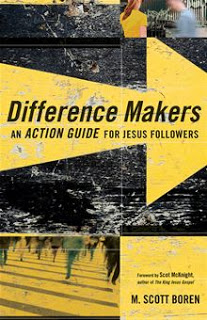 ifference Makers: An Action Guide for Jesus Followers M. Scott Boren (Baker) $13.99 One of the great things about these CCO students living together at OCBP that I’ve mentioned is that they are eager to reach out, to serve others, to make a difference where they can. And it seems they have been inspired and somewhat equipped to do so — some have been to the Jubilee Conference in Pittsburgh, and some have already bought books from us, so they get the whole “all of life redeemed” worldview vision. But, like most of us, they need equipped, trained, guided.
ifference Makers: An Action Guide for Jesus Followers M. Scott Boren (Baker) $13.99 One of the great things about these CCO students living together at OCBP that I’ve mentioned is that they are eager to reach out, to serve others, to make a difference where they can. And it seems they have been inspired and somewhat equipped to do so — some have been to the Jubilee Conference in Pittsburgh, and some have already bought books from us, so they get the whole “all of life redeemed” worldview vision. But, like most of us, they need equipped, trained, guided.
So here’s the thing: many of us want to do evangelism, to make disciples, serve God in good ways whether it is the day to day stuff, paying attention to our neighborhood, or being involved in initiatives for social justice. Do you feel like you’ve been trained or equipped to reach out and let your light shine, as they say? And, further, if you wanted to do ministry with others, serving others to learn how to be so equipped, would you know how to “disciple” and mentor them?
Aren’t these questions that many of us ponder: how do we serve God better, and, if we see ourselves as leaders, how do we inspire and empower and mentor others along the way? We want to make a difference, and we want to influence others to make a difference, for God’s glory and our neighbors good. We want to do winsome evangelism, but don’t know where to start. Just how do you do this? How does one influence the world, and how does one influence other Christians in ways that empowers them learn how to be salt and light and leaven in the world? This book is simply one of the best resources I’ve seen about how to get active, be more missional, prayerfully and attentive pour yourself into others, mentor and guide and inspire them to be “difference makers.” If you know someone who wants to be culturally engaged or socially active or who wants to lead a Bible study or learn to share their faith, and you want to come alongside them to encourage them, you need this book.
Funny – and I mean no offense here – but many well-trained pastors don’t seem to know how to do ministry, working with people outside of committees or pastoral counseling sessions, and they’ve not been taught in seminary the social and emotional and strategic skills about being a spiritually formative influence on others. They preach good sermons to inspire us to be God’s agents in the world, some can teach, but don’t quite know how to come alongside those struggling to figure out how to be a faithful presence in the world. They often don’t know how to “make disciples” living out, say, 2 Timothy 2:2, hanging out and passing on and equipping others to do the work of the Kingdom. The creative insights and “doable first steps” found here in this great handbook will help. Pastors, campus ministers, Christian educators, small group leaders, work through this book with your people. Pass this out and do the prayerful lectio exercises which will be transforming. Difference Makers: An Action Guide… is a missional training handbook, par excellance.
T actics: A Game Plan for Discussing Your Christian Convictions Gregory Koukl (Zondervan) $14.99 I have suggested in this column that the days of harsh argumentation and developing air-tight intellectual strategies for presenting truth claims in absolute ways are nearly over. That is certainly the position of a few of the books listed above (like Myron Bradley Penner’s or John Wilkinson’s, for instance.) Yet – yet! – that simply isn’t the case in some quarters, and if you expect that you might have reason to dialogue with rationalistic skeptics or thinking seekers, this guidebook will teach you how to maneuver comfortably and graciously as you share your faith with others. I have some quibbles about some of the rhetoric here, but overall, it is a very useful tool, and I do recommend it.
actics: A Game Plan for Discussing Your Christian Convictions Gregory Koukl (Zondervan) $14.99 I have suggested in this column that the days of harsh argumentation and developing air-tight intellectual strategies for presenting truth claims in absolute ways are nearly over. That is certainly the position of a few of the books listed above (like Myron Bradley Penner’s or John Wilkinson’s, for instance.) Yet – yet! – that simply isn’t the case in some quarters, and if you expect that you might have reason to dialogue with rationalistic skeptics or thinking seekers, this guidebook will teach you how to maneuver comfortably and graciously as you share your faith with others. I have some quibbles about some of the rhetoric here, but overall, it is a very useful tool, and I do recommend it.
On the back cover it says “learn how to navigate mine fields, stop challengers in their tracks, turn the tables and – most importantly – get people thinking about Jesus. Many big name apologists from this evidentialist school of argument (note the rhetoric in the above sentence) rave about this. Norm Geisler says, “There is no better book to equip Christians to think clearly, soundly, and inoffensively.” William Lane Craig says “Tactics will make you a more effective ambassador for Christ.” J. P. Moreland says it is “the authoritative treatment about how to employ various strategies in conversations with unbelievers about the Christian faith.”
I think it is helpful to study communication theory, to learn to more skillfully manage details of dialogue, applying principles of sound thinking, adopting engaging and disarming styles to use when people raise objections. Learning these “techniques” can soon become a natural impulse for you, to be thoughtful, rigorous, clear, but also a good listener and kindly. So this is good. I do believe that if you want to be effective in Kingdom witness in these days this isn’t the only book you should read, as this “tactical” strategy for conversation is a bit heavy on the left brain, and seems to carry an assumption that most nonbelievers or seekers are skeptics wanting to have heavy debates about truth — minefields and all that. Some do, and this is a helpful resource, but (despite the raves by Moreland, McDowell, et al) it isn’t the only tool to have, and is only one style of faithful response. But what it does, it does quite well.
BOOKS TO SHARE WITH SEEKERS
E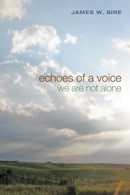 choes of a Voice: We Are Not Alone James W. Sire (Cascade Books) $29.00 I mentioned above the new book about apologetics by James Sire. This is nearly a companion volume, also quite new, which documents the ineffable — these “sudden, unbidden, unexpected, strange experience” that we all have. What are they? Is there Something Other? Sire has studied a large number of accounts of those who have had some luminous sensation, paring them with his own experiences. He turns to scientists, philosophers and theologians. As it says on the back cover “These experiences, he concludes, are signals of transcendence or what N.T. Wright calls echoes of a voice – “the voice of Jesus, calling us to follow him into God’s new world.”” Put simply, this book is an account of Jim’s fascinating journey to this conclusion.
choes of a Voice: We Are Not Alone James W. Sire (Cascade Books) $29.00 I mentioned above the new book about apologetics by James Sire. This is nearly a companion volume, also quite new, which documents the ineffable — these “sudden, unbidden, unexpected, strange experience” that we all have. What are they? Is there Something Other? Sire has studied a large number of accounts of those who have had some luminous sensation, paring them with his own experiences. He turns to scientists, philosophers and theologians. As it says on the back cover “These experiences, he concludes, are signals of transcendence or what N.T. Wright calls echoes of a voice – “the voice of Jesus, calling us to follow him into God’s new world.”” Put simply, this book is an account of Jim’s fascinating journey to this conclusion.
Listen to what Sire’s friend Os Guinness says of it,
For dwellers in our modern ‘world without windows,’ or for prisoners in Plato’s cave content with the flickering shadows on the wall, Sire has given us a brilliant and helpful survey of pathways to the sun and freedom – some sure and some illusory. Echoes of a Voice should be read by all who wrestle with communicating faith persuasively today.
Here is another fabulous blurb from the back cover:
Despite the grinding tyranny of contemporary materialism, the human spirit persists in longing for transcendence. Deeply personal and impressively erudite, Echoes of a Voice explores how our experiences constantly point us in a direction beyond this physical world and the various ways that we have tended to interpret those experiences. Ultimately, Sire challenges us to look for that which satisfies our deepest longings for meaning, for community, and for relationship with the God who constantly reveals himself to his creation. Gene Fant, author of God as Author
T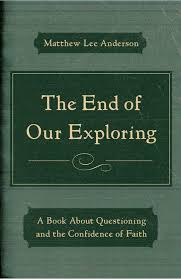 he End of Our Exploring: Book About Questioning and the Confidence of Faith Matthew Lee Anderson (Moody Publishers) $13.99 Do you know this line from the end of the famous “Little Gidding” poem by T.S. Elliot? (My old friend Brooks Williams used it in what became one of my all-time favorite songs, “Wanderer’s Song.”) The thesis of this book is simple — it is fine to ask good questions, to doubt, to wonder, to explore. I know some have foolishly been taught that this isn’t safe, or healthy, or they’ve not been guided towards asking good questions, and exploring well. This is very well-written and covers much good ground, from a very reliable and insightful author who has studied philosophy and theology, and writes in a clear, inviting way. You may know somebody for whom this little book could be a lifeline, an offer of freedom, intellectual credibility, and a guide to the best answers. I think it is good for anyone, which is why we’ve highlighted it here before. Do check it out — highly recommended!
he End of Our Exploring: Book About Questioning and the Confidence of Faith Matthew Lee Anderson (Moody Publishers) $13.99 Do you know this line from the end of the famous “Little Gidding” poem by T.S. Elliot? (My old friend Brooks Williams used it in what became one of my all-time favorite songs, “Wanderer’s Song.”) The thesis of this book is simple — it is fine to ask good questions, to doubt, to wonder, to explore. I know some have foolishly been taught that this isn’t safe, or healthy, or they’ve not been guided towards asking good questions, and exploring well. This is very well-written and covers much good ground, from a very reliable and insightful author who has studied philosophy and theology, and writes in a clear, inviting way. You may know somebody for whom this little book could be a lifeline, an offer of freedom, intellectual credibility, and a guide to the best answers. I think it is good for anyone, which is why we’ve highlighted it here before. Do check it out — highly recommended!
T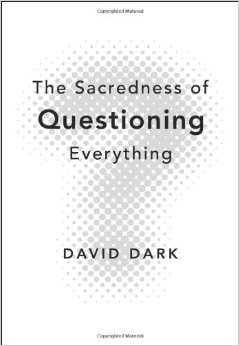 he Sacredness of Questioning Everything David Dark (Zondervan) $15.99 One might think that inviting people to this ancient, sacred task of questioning simple truths, investigating matters, upsetting the apple carts, deconstructing, if you will, might be disruptive to evangelical faith. Maybe so. But this is so essential for healthy human flourishing and personal development (and such an accepted part of postmodern culture) that to fear (or dismiss with snarky comments) the good heart of this good project, is to miss extraordinary possibilities of engaging with seekers, skeptics, those who wonder (and those who wander.) David Dark is a very, very, creative thinker, sometimes nearly sensational — he writes almost wildly, at times, and knows so much about so much (including pop culture; I hope you know his wonderful book Everyday Apocalypse: The Sacred Revealed in Radiohead, The Simpsons, and Other Pop Culture Icons which, by the way, could be another helpful resource for postmodern evangelism.) Eugene Peterson has a wise endorsing blurb on the back of this; I do too, for that matter. Check it out.
he Sacredness of Questioning Everything David Dark (Zondervan) $15.99 One might think that inviting people to this ancient, sacred task of questioning simple truths, investigating matters, upsetting the apple carts, deconstructing, if you will, might be disruptive to evangelical faith. Maybe so. But this is so essential for healthy human flourishing and personal development (and such an accepted part of postmodern culture) that to fear (or dismiss with snarky comments) the good heart of this good project, is to miss extraordinary possibilities of engaging with seekers, skeptics, those who wonder (and those who wander.) David Dark is a very, very, creative thinker, sometimes nearly sensational — he writes almost wildly, at times, and knows so much about so much (including pop culture; I hope you know his wonderful book Everyday Apocalypse: The Sacred Revealed in Radiohead, The Simpsons, and Other Pop Culture Icons which, by the way, could be another helpful resource for postmodern evangelism.) Eugene Peterson has a wise endorsing blurb on the back of this; I do too, for that matter. Check it out.
R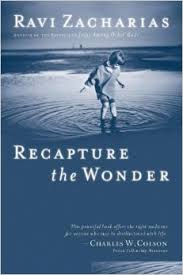 ecapture the Wonder Ravi Zacharias (Nelson) $12.99 Ravi Z is renowned the world over as one of the most eloquent and articulate defenders of Christian orthodoxy. He is a powerful speaker, a gracious but hard-hitting evangelist, and a scholar who has conversations with some of the world’s leading atheists, political leaders, and scholars. Yes, he seems like an old-school rationalists, yet here he moves towards the contemporary ethos, wondering why we all seek wonder. “Deep within all of us is a longing to recapture a sense of wonder,” he writes, “to marvel at the mystery of God and His creation as we did as children.” Has our capacity for wonder been stifle by busyness and ambition? Have we “resigned ourselves to explaining away all that once made us gasp in awe?” This offers an argument for this deeper, sensuous life, offered with poetic insights, and pointing the way to allowing our minds to embrace the deepest desires of our hearts and experience life as God intended it to be.” If you know RZM you know he is a serious, thoughtful author. I hope you have not overlooked this lovely one, what one thoughtful reviewer called “the right medicine for anyone who may be disillusioned with life.” “We are disillusioned, he argues,” Charles Colson wrote, “because we have lost our sense of wonder, and that is a problem that has a cure.” This book can help believers and seekers alike.
ecapture the Wonder Ravi Zacharias (Nelson) $12.99 Ravi Z is renowned the world over as one of the most eloquent and articulate defenders of Christian orthodoxy. He is a powerful speaker, a gracious but hard-hitting evangelist, and a scholar who has conversations with some of the world’s leading atheists, political leaders, and scholars. Yes, he seems like an old-school rationalists, yet here he moves towards the contemporary ethos, wondering why we all seek wonder. “Deep within all of us is a longing to recapture a sense of wonder,” he writes, “to marvel at the mystery of God and His creation as we did as children.” Has our capacity for wonder been stifle by busyness and ambition? Have we “resigned ourselves to explaining away all that once made us gasp in awe?” This offers an argument for this deeper, sensuous life, offered with poetic insights, and pointing the way to allowing our minds to embrace the deepest desires of our hearts and experience life as God intended it to be.” If you know RZM you know he is a serious, thoughtful author. I hope you have not overlooked this lovely one, what one thoughtful reviewer called “the right medicine for anyone who may be disillusioned with life.” “We are disillusioned, he argues,” Charles Colson wrote, “because we have lost our sense of wonder, and that is a problem that has a cure.” This book can help believers and seekers alike.
D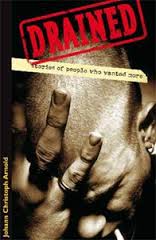 rained: Stories of People Who Wanted More Johann Christoph Arnold (Plough Publishing) $8.00 We are delighted that Plough Publishing is back in business after a hiatus of many years – they are a fascinating indie press that brings together quotes and insights from sophisticated literary figures with a down-to-Earth search for meaning, framed by their radical, Anabaptist faith community called the Bruderhof. With the almost punk cover design, this would be appreciated by anybody searching for help in the middle of struggles, but especially those who may be on culture’s margins, who are feeling lost, stressed, betrayed or confused. These are not testimonies of clean or clear Christian conversion, but stories of those who refuse to run on empty, who long for greater meaning, or were willing to search for more and hear the truth of the power of love and the profundity of service. Revolutionary stuff!
rained: Stories of People Who Wanted More Johann Christoph Arnold (Plough Publishing) $8.00 We are delighted that Plough Publishing is back in business after a hiatus of many years – they are a fascinating indie press that brings together quotes and insights from sophisticated literary figures with a down-to-Earth search for meaning, framed by their radical, Anabaptist faith community called the Bruderhof. With the almost punk cover design, this would be appreciated by anybody searching for help in the middle of struggles, but especially those who may be on culture’s margins, who are feeling lost, stressed, betrayed or confused. These are not testimonies of clean or clear Christian conversion, but stories of those who refuse to run on empty, who long for greater meaning, or were willing to search for more and hear the truth of the power of love and the profundity of service. Revolutionary stuff!
I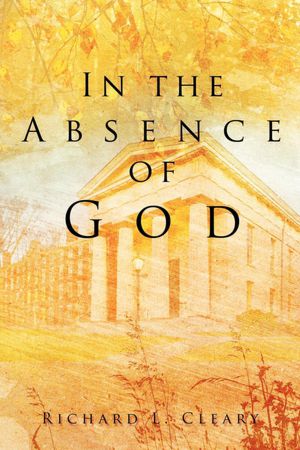 n the Absence of God Richard L. Cleary (Xulon; $24.99) At the Jamie Smith lecture, another book we had stacked up in our apologetics section there (and that we proudly feature in our store, of course) is a novel about these very questions about the existence of God, the nature of truth, and whether there really is such a thing as right and wrong. Set on a college campus, written by my very good friend, neighbor, and local philosophy teacher, it is a hefty tale, with a lot going on, making it ideal for those that want to consider life’s big questions in the form of a story. This takes up Lewis’s and Smith’s call to use the novel form to do “pre-evangelism” and communicate the terrain of philosophy and ethics — and is very moving in many ways. I’ve mentioned this novel before, but if you don’t have it yet, it might be useful – it follows the conversations between professors (Christian and otherwise) and students (including some football players and a couple who are dating) on a typical college campus. Cleary is quite passionate about intellectual credibility; he seems to be taking the Dostoevsky line about how anything is permitted if there is no God and has his character’s explore the implications of such arguments among these students and teachers trying to figure out right and wrong. It is a good story, with lots of intellectual dialogue, with the biggest questions one can ask being explored by the characters. I am not the only one who has wished for a sequel… maybe someday. For now, check it out and pass it on.
n the Absence of God Richard L. Cleary (Xulon; $24.99) At the Jamie Smith lecture, another book we had stacked up in our apologetics section there (and that we proudly feature in our store, of course) is a novel about these very questions about the existence of God, the nature of truth, and whether there really is such a thing as right and wrong. Set on a college campus, written by my very good friend, neighbor, and local philosophy teacher, it is a hefty tale, with a lot going on, making it ideal for those that want to consider life’s big questions in the form of a story. This takes up Lewis’s and Smith’s call to use the novel form to do “pre-evangelism” and communicate the terrain of philosophy and ethics — and is very moving in many ways. I’ve mentioned this novel before, but if you don’t have it yet, it might be useful – it follows the conversations between professors (Christian and otherwise) and students (including some football players and a couple who are dating) on a typical college campus. Cleary is quite passionate about intellectual credibility; he seems to be taking the Dostoevsky line about how anything is permitted if there is no God and has his character’s explore the implications of such arguments among these students and teachers trying to figure out right and wrong. It is a good story, with lots of intellectual dialogue, with the biggest questions one can ask being explored by the characters. I am not the only one who has wished for a sequel… maybe someday. For now, check it out and pass it on.
C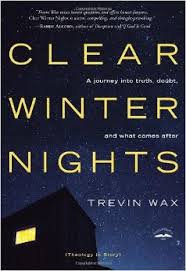 lear Winter Nights: A Journey into Truth, Doubt, and What Comes After Trevin Wax (Multnomah) $13.99 I love small, chunky-sized, compact hardbacks – and this novel is a delight. Whether you know people who are searching for real faith (or no faith at all) this story tells what happens when a young Christian dealing with significant disillusionment and doubt spends a weekend with an elderly retired pastor. Of course, they talk – and no subject is off limits. This isn’t as long or heady as Cleary’s In the Absence of God (had has less of a dramatic plot.) The conversation ranges from disillusionment and forgiveness to the distinctiveness of the gospel of grace… it is a lovely little read, and could be a great thing to share with others and talk about in a book group. Randy Alcorn says that it is “warm, compelling, and thought-provoking.”
lear Winter Nights: A Journey into Truth, Doubt, and What Comes After Trevin Wax (Multnomah) $13.99 I love small, chunky-sized, compact hardbacks – and this novel is a delight. Whether you know people who are searching for real faith (or no faith at all) this story tells what happens when a young Christian dealing with significant disillusionment and doubt spends a weekend with an elderly retired pastor. Of course, they talk – and no subject is off limits. This isn’t as long or heady as Cleary’s In the Absence of God (had has less of a dramatic plot.) The conversation ranges from disillusionment and forgiveness to the distinctiveness of the gospel of grace… it is a lovely little read, and could be a great thing to share with others and talk about in a book group. Randy Alcorn says that it is “warm, compelling, and thought-provoking.”
T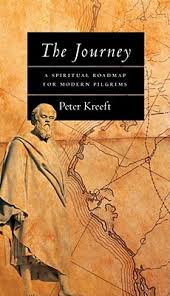 he Journey: A Spiritual Roadmap for Modern Pilgrims Peter Kreeft (IVP) $13.00 What a great little book this is, especially appealing to those who are interested in not only a fun story, but honest seeking, the history of philosophy, and the big questions. In this imaginative journey, a modern seeker makes a journey through time, meeting various characters who offer bits and pieces of true knowledge and glimmers of wisdom. From Socrates on, he grapples with meaning and materialism, cynicism and relativism, pantheism and nihilism and more. In a sense, it is like Pilgrim’s Progress or even Lewis’ Pilgrim’s Regress.
he Journey: A Spiritual Roadmap for Modern Pilgrims Peter Kreeft (IVP) $13.00 What a great little book this is, especially appealing to those who are interested in not only a fun story, but honest seeking, the history of philosophy, and the big questions. In this imaginative journey, a modern seeker makes a journey through time, meeting various characters who offer bits and pieces of true knowledge and glimmers of wisdom. From Socrates on, he grapples with meaning and materialism, cynicism and relativism, pantheism and nihilism and more. In a sense, it is like Pilgrim’s Progress or even Lewis’ Pilgrim’s Regress.
Os Guinness notes that it is “pithy, illuminating and witty… a delight for tough-minded thinkers, whether believers, seekers, or skeptics.”
T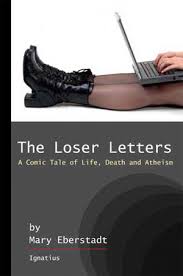 he Loser Letters: A Comic Tale of Life, Death, and Atheism Mary Eberstadt (Ignatius Press) $13.95 Well, this isn’t the sort book (and Eberstadt isn’t the kind of author) who coddles postmodern relativists, despite the insights of Smith or Taylor. Yet, she isn’t just a dry “argue the proof and insist on the dogma” gal, either; note, this is a story! It is, in fact, a wickedly witty satire. This chronicles the conversion of a young adult Christian to atheism, a tragicomic heroine who writes a series of open letters to Richard Dawkins and Christopher Hitchens to help them win over more converts to atheism. Eberstadt is a conservative and savvy Catholic, and this rivals The Onion or Screwtape Letters for black comedy of sheer genius.
he Loser Letters: A Comic Tale of Life, Death, and Atheism Mary Eberstadt (Ignatius Press) $13.95 Well, this isn’t the sort book (and Eberstadt isn’t the kind of author) who coddles postmodern relativists, despite the insights of Smith or Taylor. Yet, she isn’t just a dry “argue the proof and insist on the dogma” gal, either; note, this is a story! It is, in fact, a wickedly witty satire. This chronicles the conversion of a young adult Christian to atheism, a tragicomic heroine who writes a series of open letters to Richard Dawkins and Christopher Hitchens to help them win over more converts to atheism. Eberstadt is a conservative and savvy Catholic, and this rivals The Onion or Screwtape Letters for black comedy of sheer genius.
R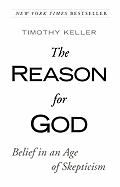 eason for God: Belief in an Age of Skepticism Timothy Keller (Dutton) $16.00 There are a number of reasons why CCO tends to favor Tim Keller, but this was the book in this category that sold the best at both the Smith lectures and at the OCBP week. It has such a reputation, and is one many people give away, or have given away and want to replace. Keller is sophisticated, thoughtful, eloquent, tough-minded, and offers the opportunity for skeptics to “doubt their doubts” and study fairly the plausibility of all views on the question. The New York Times once likened his thoughtful and literary approach to C.S. Lewis, and it is nice to see students wading through such significant work.
eason for God: Belief in an Age of Skepticism Timothy Keller (Dutton) $16.00 There are a number of reasons why CCO tends to favor Tim Keller, but this was the book in this category that sold the best at both the Smith lectures and at the OCBP week. It has such a reputation, and is one many people give away, or have given away and want to replace. Keller is sophisticated, thoughtful, eloquent, tough-minded, and offers the opportunity for skeptics to “doubt their doubts” and study fairly the plausibility of all views on the question. The New York Times once likened his thoughtful and literary approach to C.S. Lewis, and it is nice to see students wading through such significant work.
B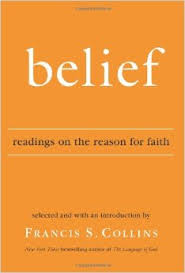 elief: Readings on the Reason for Faith edited and introduced by Francis Collins (HarperOne) $19.99 The backstory of this is part of the fun – Collins, as you most likely know, is the former director of the Human Genome Project for the National Institute of Health, and now the Director of the NIH. As a leading geneticist he is a world-renowned scientist and, happily, an outspoken, humble, “mere Christian” (yes, he’s a Lewis fan.) Although he has authored and co-authored several books on the wise interface of faith and science, he is still often asked about his own faith journey, how he grew out of his unbelieving background, and how he came to conventional Christian faith. He found himself passing out chapters of books, suggesting readings, finding this piece or that author, and decided to compile them into a reader, sort of a handbook of primary source writings that explain the reasonableness of faith, and the classic quality of some of the best thinkers who have offering insights for these complex conversations. The book is divided into 10 categories, with several readings in each section.
elief: Readings on the Reason for Faith edited and introduced by Francis Collins (HarperOne) $19.99 The backstory of this is part of the fun – Collins, as you most likely know, is the former director of the Human Genome Project for the National Institute of Health, and now the Director of the NIH. As a leading geneticist he is a world-renowned scientist and, happily, an outspoken, humble, “mere Christian” (yes, he’s a Lewis fan.) Although he has authored and co-authored several books on the wise interface of faith and science, he is still often asked about his own faith journey, how he grew out of his unbelieving background, and how he came to conventional Christian faith. He found himself passing out chapters of books, suggesting readings, finding this piece or that author, and decided to compile them into a reader, sort of a handbook of primary source writings that explain the reasonableness of faith, and the classic quality of some of the best thinkers who have offering insights for these complex conversations. The book is divided into 10 categories, with several readings in each section.
The first section goes under the heading “Classic Arguments for Faith and Reason” and includes readings from Plato to Augustine, Anselm to Aquinas, Locke to Pascal. More contemporary authors are found in the “Meaning of Truth” unit, including Os Guinness, Madeleine L’Engle, and Dorothy Sayers. The rest of the book follows this pattern, with a few older authors (Elton Trueblood, Elie Wiesel, G.K. Chesterton) with many more recent ones, from Alvin Plantinga to Alister McGrath, Tim Keller to John Polkinghorne. There are a few cultural conservatives, and many icons that will appeal to progressives (Martin Luther King, the Dalai Lama, Desmond Tutu.) I cannot even tell you how useful this is, with such a diverse range of writers, curated and described by this fine, reliable Christian thinker. It is personal, persuasive, life-giving and helpful for any serious skeptic. N.T. Wright wrote a wonderful first chapter. As Philip Yancey said of it, “As I read through the chapters, I felt I was at a banquet table with old friends. What a feast Francis Collins has served.” Meaty, mature, and very, very good.
Is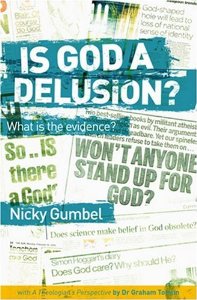 God a Delusion? What’s the Evidence? Nicky Gumbel (Alpha) $10.99 There are dozens of books somewhat like this, offering basic questions and plausible replies. Some include fairly standard questions many of us have, and some (like this one) are more focused on the questions coming from the new atheists. We stock many other fine ones on the atheists, with different tones, levels, and answers, but named this one because it is quite readable, brief, and written in a very colloquial, inviting tone. It basically replies to the accusations that science has disproved God and that religion poisons everything. I suppose you’ve heard of the effective Alpha evangelism program, and we stock most of the books used in the Alpha classes. This one is upbeat, clear, and really quite useful for most folks. Let us know if you want some that are perhaps more philosophically substantive.
God a Delusion? What’s the Evidence? Nicky Gumbel (Alpha) $10.99 There are dozens of books somewhat like this, offering basic questions and plausible replies. Some include fairly standard questions many of us have, and some (like this one) are more focused on the questions coming from the new atheists. We stock many other fine ones on the atheists, with different tones, levels, and answers, but named this one because it is quite readable, brief, and written in a very colloquial, inviting tone. It basically replies to the accusations that science has disproved God and that religion poisons everything. I suppose you’ve heard of the effective Alpha evangelism program, and we stock most of the books used in the Alpha classes. This one is upbeat, clear, and really quite useful for most folks. Let us know if you want some that are perhaps more philosophically substantive.
S imply Christian N.T. Wright (HarperOne) $24.95 Although many students I know want to read C.S. Lewis, and Mere Christianity remains a routine seller, there is this sense that much of his argument, and the tone of his writing, resonate less and less with 21st century readers. Maybe it is the postmodern thing, maybe it is merely the academic and rhetorical rigor which is beyond many readers; the thoughtful and eloquent N.T. Wright felt this, too. There needed to be a book that started not with (as Lewis does) a longing for home, drawing on sweet memories of a loving family, but that started with the longing for peace, justice, sexual integrity and a few other major, anxious themes present in the current landscape. Another thing Wright wanted to do is root the apologetic for Christian faith in the Bible and its sweeping narrative in a way that Lewis did not. So he set out to write Simply Christian, which (like Mere Christianity) is of great benefit for seekers and the unchurched, making a case as it does that the Bible can provide a framework for thinking about the longings and concerns of our times, but it is also a very, very helpful read for believers. I wish it were not a hardback; still, it is one of the best books to make present a meaningful, relevant, Biblical faith applied to real life that has been written in our time.
imply Christian N.T. Wright (HarperOne) $24.95 Although many students I know want to read C.S. Lewis, and Mere Christianity remains a routine seller, there is this sense that much of his argument, and the tone of his writing, resonate less and less with 21st century readers. Maybe it is the postmodern thing, maybe it is merely the academic and rhetorical rigor which is beyond many readers; the thoughtful and eloquent N.T. Wright felt this, too. There needed to be a book that started not with (as Lewis does) a longing for home, drawing on sweet memories of a loving family, but that started with the longing for peace, justice, sexual integrity and a few other major, anxious themes present in the current landscape. Another thing Wright wanted to do is root the apologetic for Christian faith in the Bible and its sweeping narrative in a way that Lewis did not. So he set out to write Simply Christian, which (like Mere Christianity) is of great benefit for seekers and the unchurched, making a case as it does that the Bible can provide a framework for thinking about the longings and concerns of our times, but it is also a very, very helpful read for believers. I wish it were not a hardback; still, it is one of the best books to make present a meaningful, relevant, Biblical faith applied to real life that has been written in our time.
V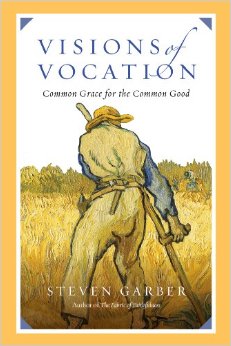 isions of Vocation: Common Grace for the Common Good Steven Garber (IVP) $16.00 I know nearly any well-written and thoughtful Christian book can be given to seekers, but a few are so profound, drawing on such universal themes, and are written with a hope that even those outside of the church will be able to appreciate them, that they could easily be mentioned on a list like this. This is one of those. Many authors write books that are plainspoken, full of Christian guidance, and are fun and easy to read (think Max Lucado, say) and many have been shared with nonbelievers, who have found comfort and help in their pages. Yet this book digs deeper, and offers a vision of life that is coherent and passionate, aware of the great sorrows of the world, and will be useful to smart, curious, passionate adults trying to figure it all out, especially. By telling stories of all kinds of amazing folks — from writers to rock stars to political activists to artists — and asking how they came to take up their passions in the world, despite its deep pain and brokenness, Garber shows that what we do in life matters, and that caring about the common good matters. Steve invites us to ponder perennial concerns, and the current interest in the meaning of work and for living in ways that are authentic and significant makes this handsome paperback very timely for any serious reader. You could be proud to give this as a gift to any thoughtful person with serious concerns, I am sure.
isions of Vocation: Common Grace for the Common Good Steven Garber (IVP) $16.00 I know nearly any well-written and thoughtful Christian book can be given to seekers, but a few are so profound, drawing on such universal themes, and are written with a hope that even those outside of the church will be able to appreciate them, that they could easily be mentioned on a list like this. This is one of those. Many authors write books that are plainspoken, full of Christian guidance, and are fun and easy to read (think Max Lucado, say) and many have been shared with nonbelievers, who have found comfort and help in their pages. Yet this book digs deeper, and offers a vision of life that is coherent and passionate, aware of the great sorrows of the world, and will be useful to smart, curious, passionate adults trying to figure it all out, especially. By telling stories of all kinds of amazing folks — from writers to rock stars to political activists to artists — and asking how they came to take up their passions in the world, despite its deep pain and brokenness, Garber shows that what we do in life matters, and that caring about the common good matters. Steve invites us to ponder perennial concerns, and the current interest in the meaning of work and for living in ways that are authentic and significant makes this handsome paperback very timely for any serious reader. You could be proud to give this as a gift to any thoughtful person with serious concerns, I am sure.
Garber observes that the band U2 sings sometimes explicitly Christian songs but the whole world is able to sing along, to resonant on some level with their theologically rich images and lines, sometimes even from the Bible. Interestingly, I think Visions of Vocation is like that, written with this same texture, obviously by a lover of God and lover of Scripture, but which thoughtful readers of any persuasion can appreciate and be drawn in by. Recommend it and see!
K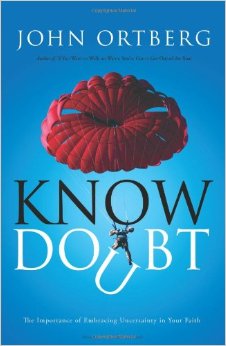 now Doubt: The Importance of Embracing Uncertainty in Your Faith John Ortberg (Zondervan) $12.99 We have in our store over a dozen good books on doubt. Some are a bit philosophical, others less so. Several are really, really good, but I often come back to this one for anyone who has wrestled with uncertainty or who has “stumbled” in faith. Ortberg is fun to read, thoughtful, clear, pastoral, and, of course, affirms those who realize that being totally honest about doubt and questions is a good thing. He offers his own struggle with doubt, traces the line between belief and unbelief and finds that it is “less a dividing line between hostile camps than a razor’s edge that runs through every soul.” I find that many are unaware that doubt is a common thing even among the devout and feel demoralized by haunting questions. Get this wonderfully-written and carefully considered book for anyone you know who may feel this need, or keep it on hand for those whenever someone ends up “in two minds.” Highly recommended.
now Doubt: The Importance of Embracing Uncertainty in Your Faith John Ortberg (Zondervan) $12.99 We have in our store over a dozen good books on doubt. Some are a bit philosophical, others less so. Several are really, really good, but I often come back to this one for anyone who has wrestled with uncertainty or who has “stumbled” in faith. Ortberg is fun to read, thoughtful, clear, pastoral, and, of course, affirms those who realize that being totally honest about doubt and questions is a good thing. He offers his own struggle with doubt, traces the line between belief and unbelief and finds that it is “less a dividing line between hostile camps than a razor’s edge that runs through every soul.” I find that many are unaware that doubt is a common thing even among the devout and feel demoralized by haunting questions. Get this wonderfully-written and carefully considered book for anyone you know who may feel this need, or keep it on hand for those whenever someone ends up “in two minds.” Highly recommended.
BookNotes

SPECIALDISCOUNTANY ITEM MENTIONED
20% off
order heretakes you to the secure Hearts & Minds order form pagejust tell us what you want
inquire here
if you have questions or need more information
just ask us what you want to know
Hearts & Minds 234 East Main Street Dallastown, PA 17313 717-246-3333
 I just love hearing stories of how churches have special liturgies or ceremonies to honor people’s work lives. Of course, some do this during the Labor Day season; more than once I’ve helped organize litanies as people brought to the front of the church items from their workplace.
I just love hearing stories of how churches have special liturgies or ceremonies to honor people’s work lives. Of course, some do this during the Labor Day season; more than once I’ve helped organize litanies as people brought to the front of the church items from their workplace.  The great new book that I mentioned last week, A Moveable Feast: Worship for the Other Six Days (ImaginationPlus; $12.00) by our friend Terry Timm, offers a whimsical, smart, and inspiring theology of worship that realizes and develops the inherent relationship between corporate Sunday worship and our various offices and tasks to which we are called on weekdays. (In fact, there is a wonderful appendix that offers an entire service around the themes of work, with worship aids, prayers and litanies and such.) It might be worthwhile Labor Day meditation for some of you.
The great new book that I mentioned last week, A Moveable Feast: Worship for the Other Six Days (ImaginationPlus; $12.00) by our friend Terry Timm, offers a whimsical, smart, and inspiring theology of worship that realizes and develops the inherent relationship between corporate Sunday worship and our various offices and tasks to which we are called on weekdays. (In fact, there is a wonderful appendix that offers an entire service around the themes of work, with worship aids, prayers and litanies and such.) It might be worthwhile Labor Day meditation for some of you.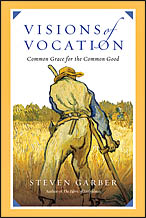 Through many, many of these conversations and in the development of new ministries, non-profits, think-tanks and publications from coast to coast, there has been one person, our good friend Steve Garber, author of Visions of Vocation: Common Grace for the Common Good (IVP; $16.00; our sale price = $12.80.)
Through many, many of these conversations and in the development of new ministries, non-profits, think-tanks and publications from coast to coast, there has been one person, our good friend Steve Garber, author of Visions of Vocation: Common Grace for the Common Good (IVP; $16.00; our sale price = $12.80.) 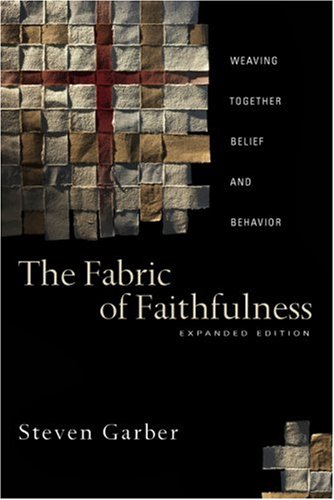 teacher grew nation-wide after the publication of his much-acclaimed book about the years beyond higher education called The Fabric of Faithfulnness: Weaving Together Believe and Behavior (IVP; $17.00; our sale price = $13.60) In that book he uses pop culture and heady philosophers and cultural critics to ask the huge questions of those trying to figure out the meaning of their lives: what does it mean to know something, and how can I keep on, with Christian convictions lived out with character and integrity, in community with friends. I has been very positively reviewed and is esteemed by very reliable authors and leaders. The new Visions of Vocation book has echoes of similiar themes, and in some ways it is a sequel. Yet, it seems more accessible, and will surely attract a broader audience. I think VoV is a good place to start if you haven’t worked through FoF.
teacher grew nation-wide after the publication of his much-acclaimed book about the years beyond higher education called The Fabric of Faithfulnness: Weaving Together Believe and Behavior (IVP; $17.00; our sale price = $13.60) In that book he uses pop culture and heady philosophers and cultural critics to ask the huge questions of those trying to figure out the meaning of their lives: what does it mean to know something, and how can I keep on, with Christian convictions lived out with character and integrity, in community with friends. I has been very positively reviewed and is esteemed by very reliable authors and leaders. The new Visions of Vocation book has echoes of similiar themes, and in some ways it is a sequel. Yet, it seems more accessible, and will surely attract a broader audience. I think VoV is a good place to start if you haven’t worked through FoF.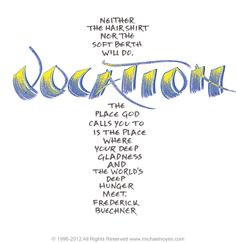 gladness and the world’s deep hunger meet”? Garber agrees, it seems, that “neither the hair shirt nor the soft berth will do” and he helps people explore that, day by day by day and although he doesn’t say so, Visions of Vocation could be seen as an extended mediation on that potent quote.
gladness and the world’s deep hunger meet”? Garber agrees, it seems, that “neither the hair shirt nor the soft berth will do” and he helps people explore that, day by day by day and although he doesn’t say so, Visions of Vocation could be seen as an extended mediation on that potent quote. wholistic Kingdom vision, the unfolding story of God’s redeeming work in the world, taking faith into public life — you will know that Garber’s worldview and vision are consistent with (in fact has helped shape) our perspective here. I hope you know I am sincere when I say that if you appreciate our work at the bookstore, our curating of books at events, and these BookNotes reviews, you should get this book!
wholistic Kingdom vision, the unfolding story of God’s redeeming work in the world, taking faith into public life — you will know that Garber’s worldview and vision are consistent with (in fact has helped shape) our perspective here. I hope you know I am sincere when I say that if you appreciate our work at the bookstore, our curating of books at events, and these BookNotes reviews, you should get this book!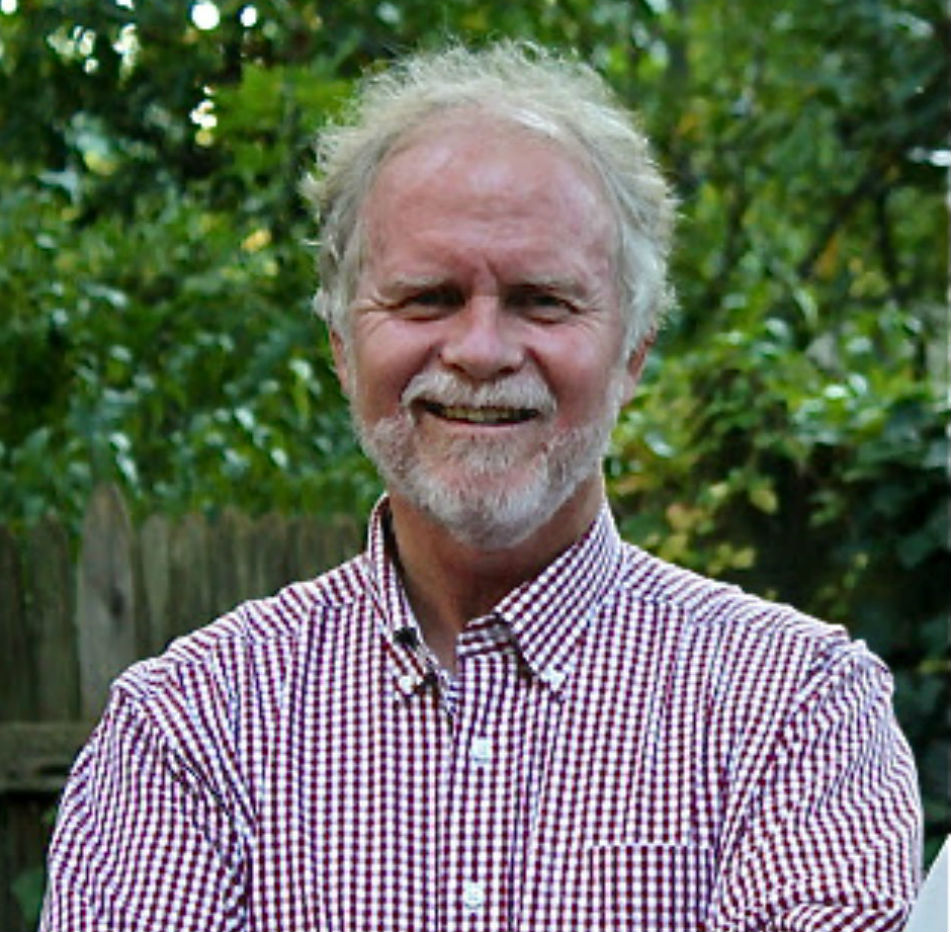 arber strikes a balance, with his gifted style, his deep knowledge, his mature guidance, and his very stimulating stories, richly told. He delightfully cites movies, mentions meetings with pop icons and rock stars. U2, Mumford & Sons, Dave Matthews Band, are quoted. He exegetes poems and rock songs and films, always offering exceptional insight, gifted as he is at doing these things. He doesn’t just cite a star so he can seem hip to a demographic, or because some editor asked him to lighten up. Steve is one of the most naturally gifted discerners of popular culture who can speak with profundity and intellectual acumen, keeping a foot properly planted in what some call the real world.
arber strikes a balance, with his gifted style, his deep knowledge, his mature guidance, and his very stimulating stories, richly told. He delightfully cites movies, mentions meetings with pop icons and rock stars. U2, Mumford & Sons, Dave Matthews Band, are quoted. He exegetes poems and rock songs and films, always offering exceptional insight, gifted as he is at doing these things. He doesn’t just cite a star so he can seem hip to a demographic, or because some editor asked him to lighten up. Steve is one of the most naturally gifted discerners of popular culture who can speak with profundity and intellectual acumen, keeping a foot properly planted in what some call the real world.  attitude. Make a difference in politics or business or media or medicine? I can hardly make a difference in my own skin or my own family. It’s a bumpy ride, this journey to live well in a screwy world, and Garber thinks we need a strong and lasting sense of vocation to withstand the tendencies to grow cold, to care less, to give up. We need to internalize deep and solid and fruitful visions of vocation, knowing just what we are called to do and be.
attitude. Make a difference in politics or business or media or medicine? I can hardly make a difference in my own skin or my own family. It’s a bumpy ride, this journey to live well in a screwy world, and Garber thinks we need a strong and lasting sense of vocation to withstand the tendencies to grow cold, to care less, to give up. We need to internalize deep and solid and fruitful visions of vocation, knowing just what we are called to do and be. 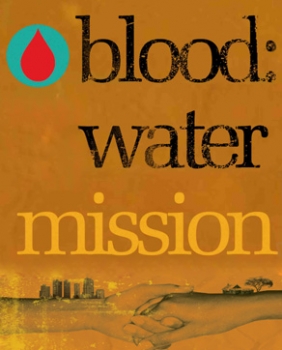 environmentally-sensitive burger chain using organic ingredients and grass-fed cattle to a Korean friend who works at the World Bank to a Lawrence, Kansas, carpenter guy, a former student of his who now owns his own small construction business, rebuilding homes with integrity, stories are shared as examples of people who are intentional about their live’s callings and the fidelity needed in that arena or responsibility. In each case, these folks have stepped into a way of doing their work that starts with deep knowing. He describes one as a person with “a seriousness about things that matter and a softness of heart.”
environmentally-sensitive burger chain using organic ingredients and grass-fed cattle to a Korean friend who works at the World Bank to a Lawrence, Kansas, carpenter guy, a former student of his who now owns his own small construction business, rebuilding homes with integrity, stories are shared as examples of people who are intentional about their live’s callings and the fidelity needed in that arena or responsibility. In each case, these folks have stepped into a way of doing their work that starts with deep knowing. He describes one as a person with “a seriousness about things that matter and a softness of heart.”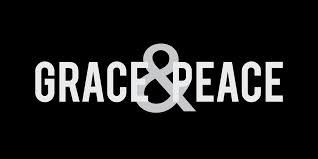 know there is much written these days about a gospel-centered life, about the doctrine of grace, both as it helps us understand the work of Christ’s cross (for our justification and sanctification) and as a style of nonjudgmental living, a gracious shift away from legalism. Yes, yes, we need gospel-drenched teachings. But Garber talks also about what some call “common grace” which is to say that God (in patience and mercy) upholds the creation for all creatures under the sun, and all of life somehow can point us towards the truth of the God who is there, and the sustainable abundance of life as it was meant to be. We can happily live in the real world, spending our ordinary days, in our ordinary occupations, knowing of God’s presence we can offer grace to a needy world. Perhaps our gift will be mundane; in our day to day we will learn to incarnate goodness, showing forth lives that embody meaning. In other words, living well for the sake of the world, because of God, makes sense, unfolds the meaning of our days. I think that may be close to what Garber means by a call to coherence — to craft lives that makes sense because the gospel is true.
know there is much written these days about a gospel-centered life, about the doctrine of grace, both as it helps us understand the work of Christ’s cross (for our justification and sanctification) and as a style of nonjudgmental living, a gracious shift away from legalism. Yes, yes, we need gospel-drenched teachings. But Garber talks also about what some call “common grace” which is to say that God (in patience and mercy) upholds the creation for all creatures under the sun, and all of life somehow can point us towards the truth of the God who is there, and the sustainable abundance of life as it was meant to be. We can happily live in the real world, spending our ordinary days, in our ordinary occupations, knowing of God’s presence we can offer grace to a needy world. Perhaps our gift will be mundane; in our day to day we will learn to incarnate goodness, showing forth lives that embody meaning. In other words, living well for the sake of the world, because of God, makes sense, unfolds the meaning of our days. I think that may be close to what Garber means by a call to coherence — to craft lives that makes sense because the gospel is true. 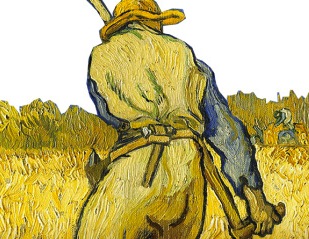 Here, then, a quick summary.
Here, then, a quick summary. 

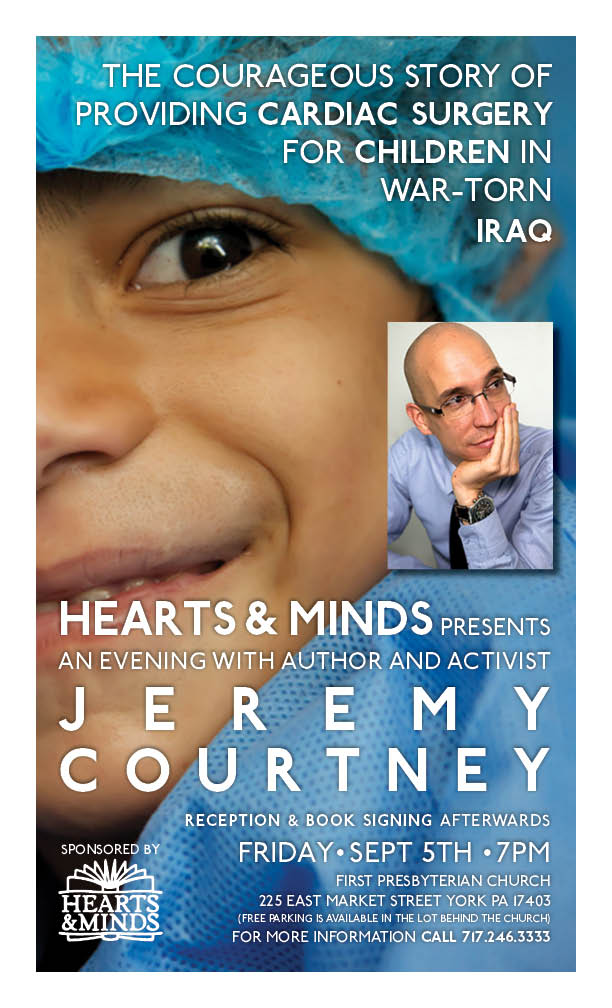 Over the years, we have hosted some famous people and
Over the years, we have hosted some famous people and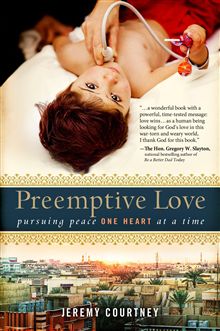 founder of the
founder of the his way of life, being intentional about being open to God
his way of life, being intentional about being open to God It is fun, too, to read about the feasts and meals, complete with local
It is fun, too, to read about the feasts and meals, complete with local peace and hope
peace and hope doctors, of
doctors, of
 having read his story. What does it take to tell a poor peasant mother that her
having read his story. What does it take to tell a poor peasant mother that her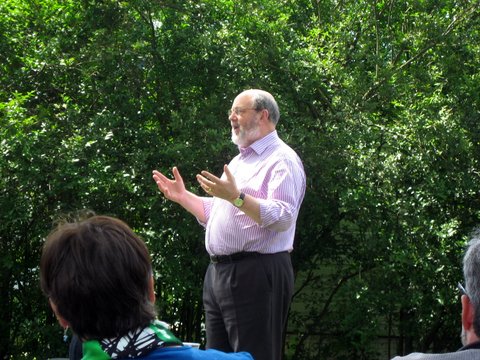 there’s a first time for everything. I found
there’s a first time for everything. I found sure, was an Eerdmans one, who helped us learn a bit about the book biz. And they’ve published some of our perennial best sellers — When the Kings Come Marching In by Rich Mouw, Creation Regained by Al Wolters, and authors such as Marva Dawn, Eugene Peterson, Ken Bailey, Nicholas Woltersdorff, and so many more.
sure, was an Eerdmans one, who helped us learn a bit about the book biz. And they’ve published some of our perennial best sellers — When the Kings Come Marching In by Rich Mouw, Creation Regained by Al Wolters, and authors such as Marva Dawn, Eugene Peterson, Ken Bailey, Nicholas Woltersdorff, and so many more. 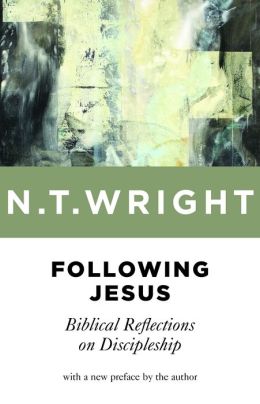 ollowing Jesus: Biblical Reflections on Discipleship (Eerdmans) $14.00 our price = $11.20
ollowing Jesus: Biblical Reflections on Discipleship (Eerdmans) $14.00 our price = $11.20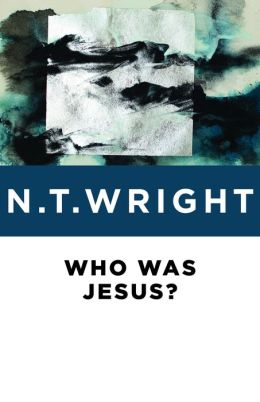 ho Was Jesus? (Eerdmans) $14.00
ho Was Jesus? (Eerdmans) $14.00 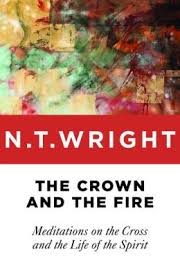 he Crown and the Fire: Meditations on the Cross and the Life of the Spirit (Eerdmans) $14.00
he Crown and the Fire: Meditations on the Cross and the Life of the Spirit (Eerdmans) $14.00 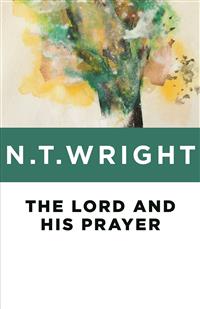 he Lord and His Prayer (Eerdmans) $11.00
he Lord and His Prayer (Eerdmans) $11.00 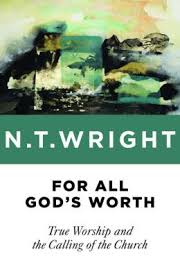 or All God’s Worth: True Worship and the Calling of the Church (Eerdmans) $14.00
or All God’s Worth: True Worship and the Calling of the Church (Eerdmans) $14.00 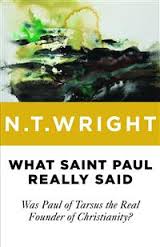 hat Saint Paul Really Said: Was Paul of Tarsus the Real Founder of Christianity (Eerdmans) $18.00
hat Saint Paul Really Said: Was Paul of Tarsus the Real Founder of Christianity (Eerdmans) $18.00 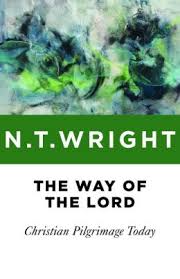 he Way of the Lord: Christian Pilgrimage Today (Eerdmans) $14.00
he Way of the Lord: Christian Pilgrimage Today (Eerdmans) $14.00 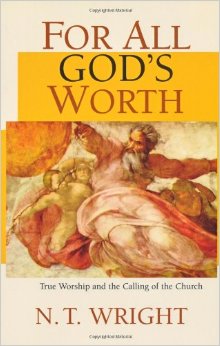
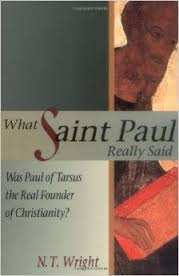 for BETTER THAN HALF PRICE. What Saint Paul Really Said usually sells for $17 and we have ’em at just $8. For All God’s Worth used to sell for $13 and we have ’em for just $6. Who Was Jesus, The Lord and His Prayer and The Way of the Lord are also, while supplies last, just $6. Nice, eh?
for BETTER THAN HALF PRICE. What Saint Paul Really Said usually sells for $17 and we have ’em at just $8. For All God’s Worth used to sell for $13 and we have ’em for just $6. Who Was Jesus, The Lord and His Prayer and The Way of the Lord are also, while supplies last, just $6. Nice, eh?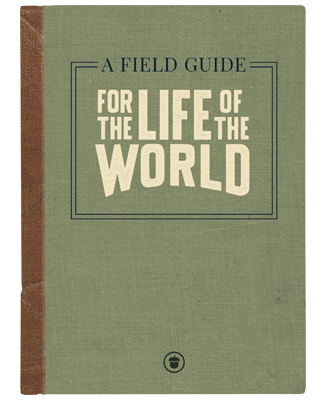 hich leads me to mention yet once again the vivid
hich leads me to mention yet once again the vivid 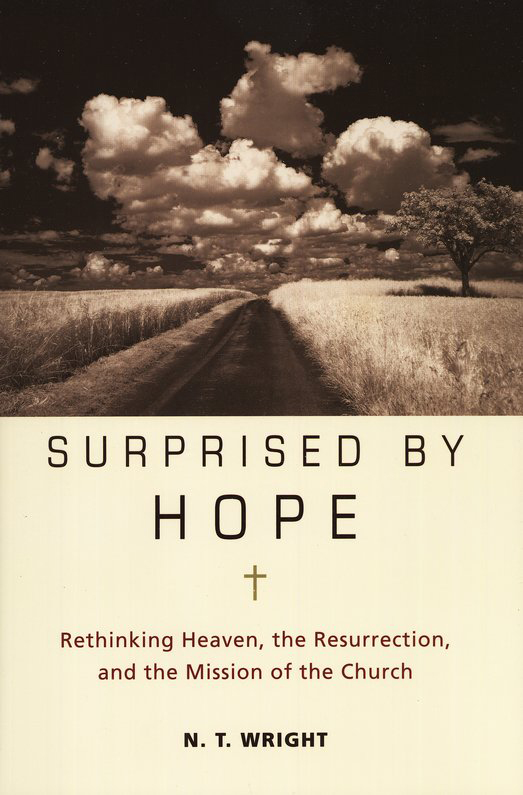 God’s world, the ways in which Christ’s glorious atoning work brings redemption to all areas of life, and how we can live faithfully in every zone of life and society with real hope. I’ve recently re-read a little of N.T. Wright’s classic Surprised By Hope: Rethinking Heaven, the Resurrection, and the Mission of the Church (HarperOne; $24.99) and have again recommended the DVDs by the same name (Zondervan; $36.99 for the six session DVD and a participants guide.)
God’s world, the ways in which Christ’s glorious atoning work brings redemption to all areas of life, and how we can live faithfully in every zone of life and society with real hope. I’ve recently re-read a little of N.T. Wright’s classic Surprised By Hope: Rethinking Heaven, the Resurrection, and the Mission of the Church (HarperOne; $24.99) and have again recommended the DVDs by the same name (Zondervan; $36.99 for the six session DVD and a participants guide.)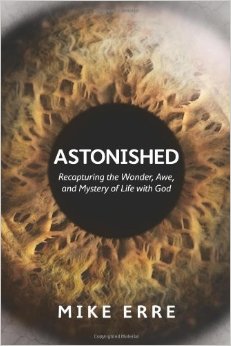 stonished: Recapturing the Wonder, Awe, and Mystery of Life with God Mike Erre (Cook) $14.99 One of the great themes in FLOW is that God made a good world, the various economies and spheres are themselves wondrous, and we are invited to a world of wonder. The interview in episode 6 with Mako Fujimura may seem to be about the value of the arts, but the deeper theme is that while most of us are not artists, we are all able to nurture the eyes to see and to stand in awe. (Read the wonderful essay inspired by this episode by my friend Bruce Herman, “
stonished: Recapturing the Wonder, Awe, and Mystery of Life with God Mike Erre (Cook) $14.99 One of the great themes in FLOW is that God made a good world, the various economies and spheres are themselves wondrous, and we are invited to a world of wonder. The interview in episode 6 with Mako Fujimura may seem to be about the value of the arts, but the deeper theme is that while most of us are not artists, we are all able to nurture the eyes to see and to stand in awe. (Read the wonderful essay inspired by this episode by my friend Bruce Herman, “ o Home Like Place: A Christian Theology of Place Leonard Hjalmarson (Urban Loft Publishers) $16.99 This may be the most important book that you’ve never heard of.
o Home Like Place: A Christian Theology of Place Leonard Hjalmarson (Urban Loft Publishers) $16.99 This may be the most important book that you’ve never heard of. 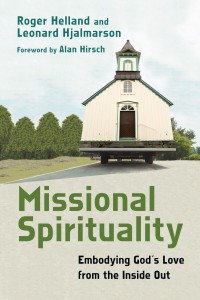 and spiritually alive. He co-wrote the wonderful Missional Spirituality: Embodying God’s Love from the Inside Out (IVP; $16.00) which was substantive and inspiring, bringing together the too-often separate themes of the inner journey and the outer, piety and politics, formation and faithfulness in the world. The very notion of missional spirituality is ripe with potential, and that book has helped readers grow deeper in their interior lives as well as see that spiritual transformation as part of a Kingdom vision, missional, engaged. Hjalmarson brings that same vision of caring about God’s work in the world and our aligning ourselves with the redemptive purposes of God in how he approaches this neighborhooded view of place.
and spiritually alive. He co-wrote the wonderful Missional Spirituality: Embodying God’s Love from the Inside Out (IVP; $16.00) which was substantive and inspiring, bringing together the too-often separate themes of the inner journey and the outer, piety and politics, formation and faithfulness in the world. The very notion of missional spirituality is ripe with potential, and that book has helped readers grow deeper in their interior lives as well as see that spiritual transformation as part of a Kingdom vision, missional, engaged. Hjalmarson brings that same vision of caring about God’s work in the world and our aligning ourselves with the redemptive purposes of God in how he approaches this neighborhooded view of place.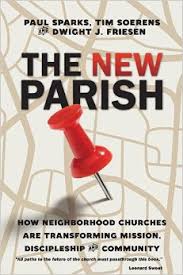 Like… draws on the savvy analysis of culture and cultures makes it in itself a good intro or reminder of the conversations and discoveries in church life these days. Hjalmarson not only draws on his strong educational gifts (he is an adjunct professor at Northern Baptist Theological Seminary in Chicago, at Tyndale Seminary, Toronto, and George Fox Evangelical Seminary in Portland) but on his own leadership in the Parish Collective, and his missional community on the shores of Thunder Bay, Ontario. The Parish Collective, I might as well say, published the stellar book about local missionalism, The New Parish: How Neighborhood Churches Are Transforming Mission, Discipleship and Community written by Paul Sparks, Tim Soerens, and Dwight Friesen (IVP; $17.00.) It’s in this same ballpark, too.
Like… draws on the savvy analysis of culture and cultures makes it in itself a good intro or reminder of the conversations and discoveries in church life these days. Hjalmarson not only draws on his strong educational gifts (he is an adjunct professor at Northern Baptist Theological Seminary in Chicago, at Tyndale Seminary, Toronto, and George Fox Evangelical Seminary in Portland) but on his own leadership in the Parish Collective, and his missional community on the shores of Thunder Bay, Ontario. The Parish Collective, I might as well say, published the stellar book about local missionalism, The New Parish: How Neighborhood Churches Are Transforming Mission, Discipleship and Community written by Paul Sparks, Tim Soerens, and Dwight Friesen (IVP; $17.00.) It’s in this same ballpark, too.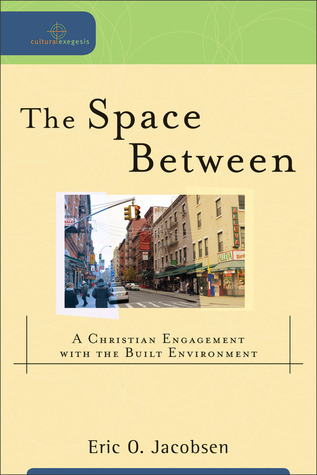 embodiment and creativity. (It isn’t a simple chapter, by the way, and it left me glad for the fresh thinking but wondering how to live it out.)
embodiment and creativity. (It isn’t a simple chapter, by the way, and it left me glad for the fresh thinking but wondering how to live it out.)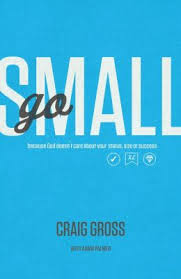 mall: Because God Doesn’t Care bout Your Status, Size, or Success Craig Gross (Nelson) $15.99 If I were just reviewing this one book, and had unlimited time and attention, I’d just copy the foreword by Josh McCown, Quarterback for the Tampa Bay Buccaneers, who talked about his short stint in the NFL, being traded, demoted, his dream of stardom not panning out as he had hoped. Inspired in part by reading an early version of this, he determined to lower his big dreams and overly visionary expectations and focused on being good and kind to whoever he was with, which ended up being a small high-school team in Waxhaw, NC.
mall: Because God Doesn’t Care bout Your Status, Size, or Success Craig Gross (Nelson) $15.99 If I were just reviewing this one book, and had unlimited time and attention, I’d just copy the foreword by Josh McCown, Quarterback for the Tampa Bay Buccaneers, who talked about his short stint in the NFL, being traded, demoted, his dream of stardom not panning out as he had hoped. Inspired in part by reading an early version of this, he determined to lower his big dreams and overly visionary expectations and focused on being good and kind to whoever he was with, which ended up being a small high-school team in Waxhaw, NC. 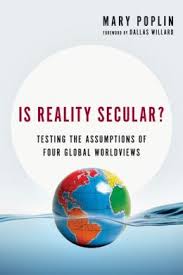 s Reality Secular? Testing the Assumptions of Four Global Worldviews Mary Poplin (Veritas Books/IVP) $18.00 As I considered resources to share to accompany you and your group in your journey into the FLOW DVD sessions, I didn’t want to just cite the obvious. So I let my thoughts ramble a bit, and I couldn’t stop thinking of this very thoughtful, richly written, substantive book that offers an evaluation of the claims made by those worldviews which insist that the world is secular. What does this even mean? Who makes these claims? And what do the most vital world philosophies say about it? Maybe this has something to do with the other big book here this summer, Jamie Smith’s How (Not) To Be Secular: Reading Charles Taylor.
s Reality Secular? Testing the Assumptions of Four Global Worldviews Mary Poplin (Veritas Books/IVP) $18.00 As I considered resources to share to accompany you and your group in your journey into the FLOW DVD sessions, I didn’t want to just cite the obvious. So I let my thoughts ramble a bit, and I couldn’t stop thinking of this very thoughtful, richly written, substantive book that offers an evaluation of the claims made by those worldviews which insist that the world is secular. What does this even mean? Who makes these claims? And what do the most vital world philosophies say about it? Maybe this has something to do with the other big book here this summer, Jamie Smith’s How (Not) To Be Secular: Reading Charles Taylor. 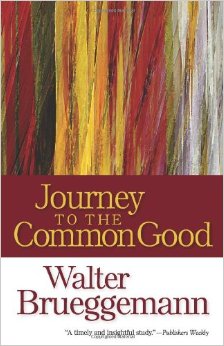 ourney to the Common Good Walter Brueggemann (WJK) $17.00 I do not need to belabor the importance of Old Testament scholar, Dr. Brueggeman, and he remains one of my favorite authors, and a church leader who has influenced me significantly. I recommend almost all of his books (a new one on the Psalms called From Whom No Secrets Are Hid is to be released by WJK in few weeks, and the much anticipated Ice Axes for Frozen Seas: A Biblical Theology of Provocation comes from Baylor in mid-September.) I have enjoyed almost all of his many works. His most recent – Sabbath as Resistance -also comes to mind as a very appropriate study to enhance our joyful life as exiles who are “against the world, for the world” as envisioned by the good folks of FLOW. I am not sure they would be as enamored with Walt as I am, but these do seem apropos.
ourney to the Common Good Walter Brueggemann (WJK) $17.00 I do not need to belabor the importance of Old Testament scholar, Dr. Brueggeman, and he remains one of my favorite authors, and a church leader who has influenced me significantly. I recommend almost all of his books (a new one on the Psalms called From Whom No Secrets Are Hid is to be released by WJK in few weeks, and the much anticipated Ice Axes for Frozen Seas: A Biblical Theology of Provocation comes from Baylor in mid-September.) I have enjoyed almost all of his many works. His most recent – Sabbath as Resistance -also comes to mind as a very appropriate study to enhance our joyful life as exiles who are “against the world, for the world” as envisioned by the good folks of FLOW. I am not sure they would be as enamored with Walt as I am, but these do seem apropos.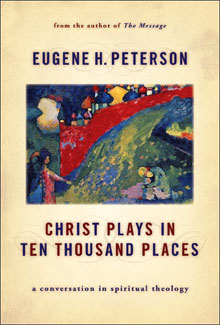 hrist Plays in Ten Thousand Places: A Conversation in Spiritual Theology Eugene Peterson (Eerdmans) $16.99 I still love my first Peterson books – A Long Obedience in the Same Direction (on the Psalms of Ascent) and Run with the Horses (on Jeremiah) which I read in the late 70s. Perhaps these are your first, too; they remain very popular and highly regarded. Like his many others, they certainly are consistent with the vision of FLOW – embodied, patient, non-ideological, nurturing habits of faithfulness that over a lifetime lead to life as it was meant to be lived, in God, for others. Yes, yes, those are good.
hrist Plays in Ten Thousand Places: A Conversation in Spiritual Theology Eugene Peterson (Eerdmans) $16.99 I still love my first Peterson books – A Long Obedience in the Same Direction (on the Psalms of Ascent) and Run with the Horses (on Jeremiah) which I read in the late 70s. Perhaps these are your first, too; they remain very popular and highly regarded. Like his many others, they certainly are consistent with the vision of FLOW – embodied, patient, non-ideological, nurturing habits of faithfulness that over a lifetime lead to life as it was meant to be lived, in God, for others. Yes, yes, those are good.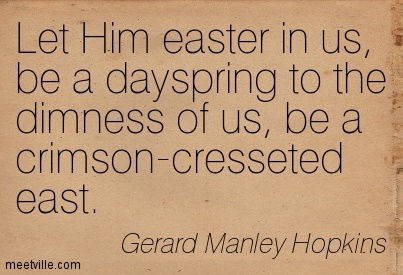 episodes (you can learn about all seven of the tee shirt portraits in the Field Guide.) The reading in the DVD of that good portion of the poem is nearly worth the price of the whole set. I’m sure that the FLOW guys knew this poem previously – many do – but I also bet that Pastor Peterson’s work was an inspiration. The whole set of his momentous spiritual theology books are exceptional, but this one is foundational. As Marva Dawn observes it’s “Eugene Peterson at his best – poet, storyteller, wonderer, biblical scholar, sage, practiced disciple, and lover of God… A life-transforming and liberating book.” Yes!
episodes (you can learn about all seven of the tee shirt portraits in the Field Guide.) The reading in the DVD of that good portion of the poem is nearly worth the price of the whole set. I’m sure that the FLOW guys knew this poem previously – many do – but I also bet that Pastor Peterson’s work was an inspiration. The whole set of his momentous spiritual theology books are exceptional, but this one is foundational. As Marva Dawn observes it’s “Eugene Peterson at his best – poet, storyteller, wonderer, biblical scholar, sage, practiced disciple, and lover of God… A life-transforming and liberating book.” Yes!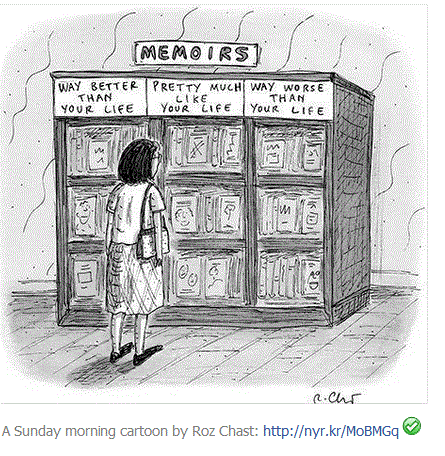
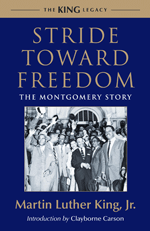 schools count as memoir, but they are nearly that, and movingly written
schools count as memoir, but they are nearly that, and movingly written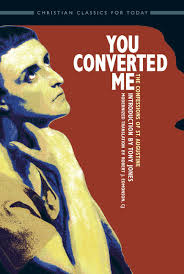
 Day or Surprised by Joy by
Day or Surprised by Joy by So, there. Hope that helps. All are on sale, too, if you are a BookNotes reader. Just use the order link, below, or click the “order” tab at the top of the website. It leads you to a secure order form page and you can just tell us what you want.
So, there. Hope that helps. All are on sale, too, if you are a BookNotes reader. Just use the order link, below, or click the “order” tab at the top of the website. It leads you to a secure order form page and you can just tell us what you want. ilgrim: Risking the Life I Have to Find the Faith I Seek Lee
ilgrim: Risking the Life I Have to Find the Faith I Seek Lee t: A Memoir Mary Karr (Harper) $14.99
t: A Memoir Mary Karr (Harper) $14.99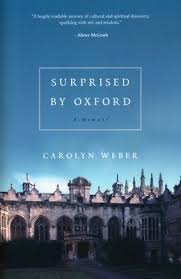 urprised by Oxford: A Memoir Carolyn Weber (Nelson) $15.99 I
urprised by Oxford: A Memoir Carolyn Weber (Nelson) $15.99 I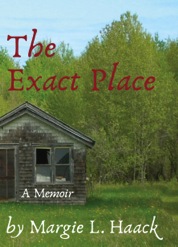 he Exact Place: A Memoir Margie L. Haack
he Exact Place: A Memoir Margie L. Haack 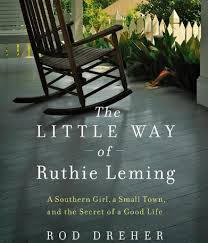 he Little Way of Ruthie Leming: A Southern Girl, a Small Town, and the
he Little Way of Ruthie Leming: A Southern Girl, a Small Town, and the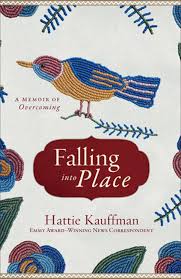 alling into Place: A Memoir of Overcoming Hattie Kauffman
alling into Place: A Memoir of Overcoming Hattie Kauffman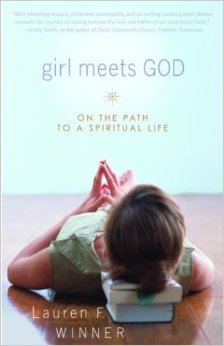 irl Meets God: On the Path to a Spiritual Life Lauren Winner (Waterbrook)
irl Meets God: On the Path to a Spiritual Life Lauren Winner (Waterbrook)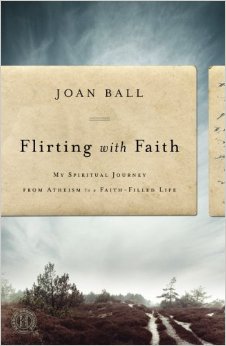 lirting With Faith: My Spiritual Journey from Atheism to a
lirting With Faith: My Spiritual Journey from Atheism to a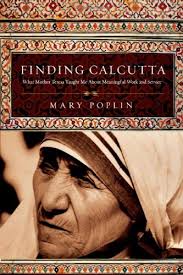 inding Calcutta: What Mother Teresa Taught Me About Meaningful Work
inding Calcutta: What Mother Teresa Taught Me About Meaningful Work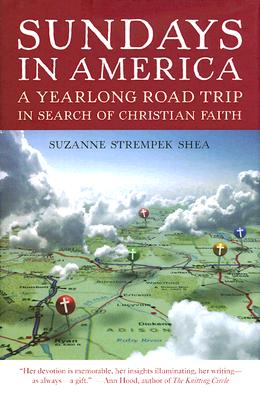 undays in America: A Year Long Road Trip in Search of Christian Faith Suzanne
undays in America: A Year Long Road Trip in Search of Christian Faith Suzanne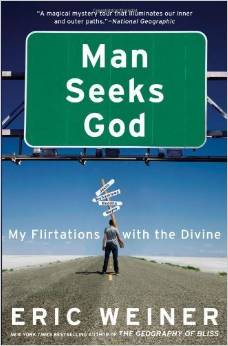 an
an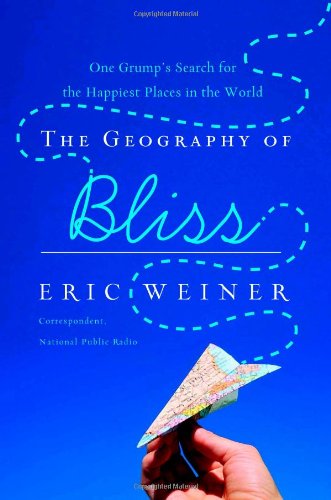 Seeks God: My Flirtation with the Divine Eric Weiner (Twelve) $26.99 Of course this is not the only book one should read if one wants to know about comparative religions, and it obviously does not bring a uniquely Christian, or Biblical framework to the project, but still — what a fun read! But what a curious project it is. Perhaps something like Bruce Fieler (Walking the Bible, The Year of Living Biblically, etc.) Weiner, who calls himself a “spiritual voyeur” and inveterate traveler, wants to actually experience what various religions have to offer, so he actually tries to adopt them the best he can. From practicing with Hindus and Buddahists, to serving with Franciscans, to some lesser known outfits, he tries to see what is good about them all. It is a clever read, and one really does show at least some of how these faiths are practiced on the ground.
Seeks God: My Flirtation with the Divine Eric Weiner (Twelve) $26.99 Of course this is not the only book one should read if one wants to know about comparative religions, and it obviously does not bring a uniquely Christian, or Biblical framework to the project, but still — what a fun read! But what a curious project it is. Perhaps something like Bruce Fieler (Walking the Bible, The Year of Living Biblically, etc.) Weiner, who calls himself a “spiritual voyeur” and inveterate traveler, wants to actually experience what various religions have to offer, so he actually tries to adopt them the best he can. From practicing with Hindus and Buddahists, to serving with Franciscans, to some lesser known outfits, he tries to see what is good about them all. It is a clever read, and one really does show at least some of how these faiths are practiced on the ground. 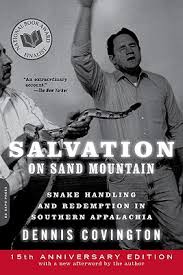 alvation on Sand Mountain: Snake Handling and Redemption in Southern
alvation on Sand Mountain: Snake Handling and Redemption in Southern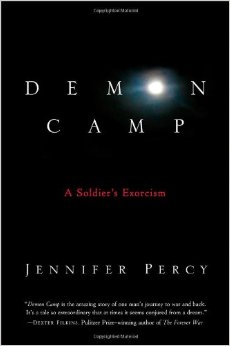 emon Camp: A Soldier’s Exorcism Jennifer Percy (Scribner)
emon Camp: A Soldier’s Exorcism Jennifer Percy (Scribner) lood Brothers Elias Chacour (Baker) $12.99 I have wanted to
lood Brothers Elias Chacour (Baker) $12.99 I have wanted to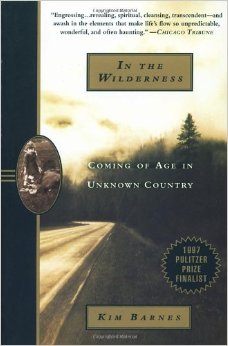 n the Wilderness: Coming of Age in an Unknown Country Kim
n the Wilderness: Coming of Age in an Unknown Country Kim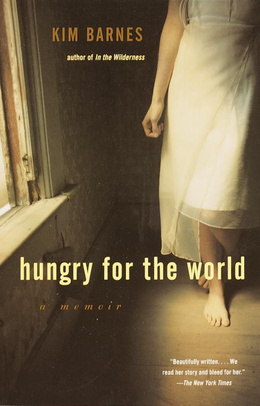 he subsequent sequel by Ms Barnes, Hungry for the World: A Memoir (Anchor;
he subsequent sequel by Ms Barnes, Hungry for the World: A Memoir (Anchor;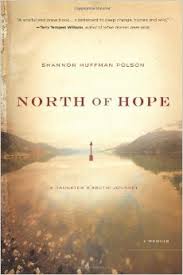 orth of Hope: A Daughter’s Arctic Journey Shannon Huffman
orth of Hope: A Daughter’s Arctic Journey Shannon Huffman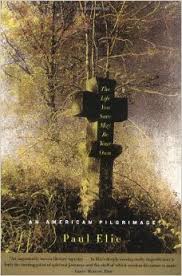 he Life You Save May Be Your Own: An American Pilgrimage Paul
he Life You Save May Be Your Own: An American Pilgrimage Paul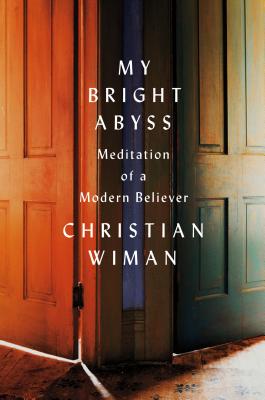 y Bright Abyss: Meditation of a Modern Believer Christian
y Bright Abyss: Meditation of a Modern Believer Christian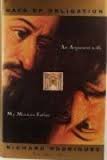 a
a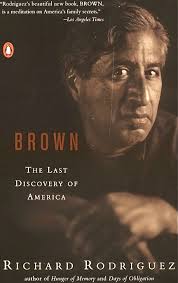 ys of Oblation: My Argument with My Mexican Father Richard
ys of Oblation: My Argument with My Mexican Father Richard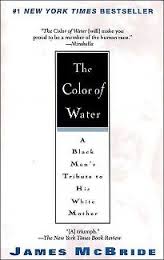 he Color of Water:
he Color of Water: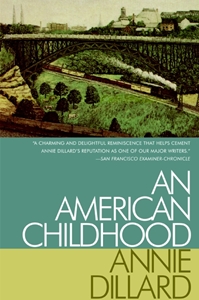 n American Childhood Annie Dillard (Harper) $13.99
n American Childhood Annie Dillard (Harper) $13.99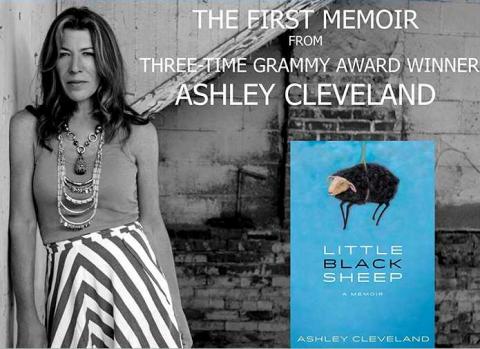 ittle Black Sheep: A Memoir Ashley Cleveland (David C. Cook)
ittle Black Sheep: A Memoir Ashley Cleveland (David C. Cook)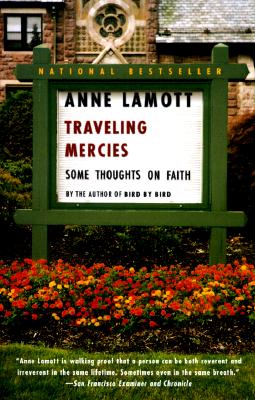 raveling Mercies: Some Thoughts on Faith Anne Lamotte (Anchor)
raveling Mercies: Some Thoughts on Faith Anne Lamotte (Anchor)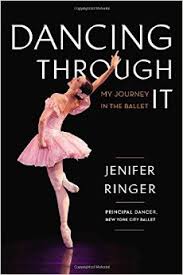 ancing Through It: My Journey in the Ballet Jenifer Ringer (Viking) $27.95
ancing Through It: My Journey in the Ballet Jenifer Ringer (Viking) $27.95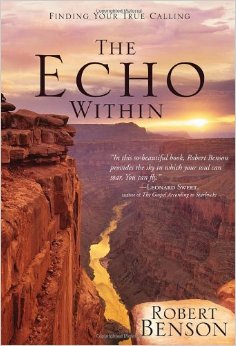 he Echo Within: Finding Your True Calling Robert Benson
he Echo Within: Finding Your True Calling Robert Benson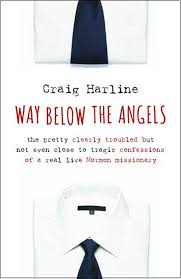 ay Below the Angels: The Pretty Clearly Troubled But Not Even Close to
ay Below the Angels: The Pretty Clearly Troubled But Not Even Close to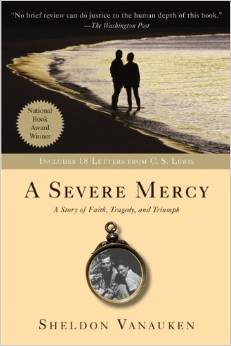 Severe Mercy: A Story of Faith, Tragedy and Triumph Sheldon Vanaukan (HarperOne) $14.99 Do you know this book? It was very popular a few decades ago, and I keep hoping there will be a renaissance of its popularity. A whole new generation of readers should know this heartbreaking story of romance and intellectual discovery, of tragedy and grief, of loneliness and friendship, of God and grace. Part of the story includes the illness and death of Davy, Sheldon’s young wife, and his grief as he correspondied with and become friends with C.S. Lewis, whose moving letters are enclosed in the book. (Lewis, you know, lost his wife, Joy, shortly after their marriage.) What an amazing, wise, powerful book, about a truly memorable couple and a nearly universal story of love, loss, and hope.
Severe Mercy: A Story of Faith, Tragedy and Triumph Sheldon Vanaukan (HarperOne) $14.99 Do you know this book? It was very popular a few decades ago, and I keep hoping there will be a renaissance of its popularity. A whole new generation of readers should know this heartbreaking story of romance and intellectual discovery, of tragedy and grief, of loneliness and friendship, of God and grace. Part of the story includes the illness and death of Davy, Sheldon’s young wife, and his grief as he correspondied with and become friends with C.S. Lewis, whose moving letters are enclosed in the book. (Lewis, you know, lost his wife, Joy, shortly after their marriage.) What an amazing, wise, powerful book, about a truly memorable couple and a nearly universal story of love, loss, and hope.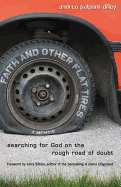 aith and Other Flat Tires: Searching for God on the Rough Road of
aith and Other Flat Tires: Searching for God on the Rough Road of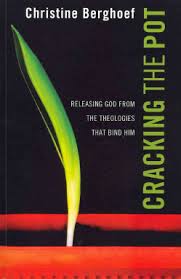 racking the Pot: Releasing God from the Theologies That Bind Him Christine
racking the Pot: Releasing God from the Theologies That Bind Him Christine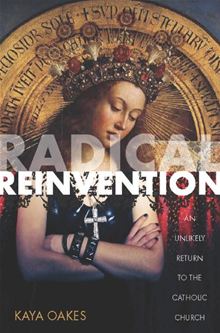 adical Reinvention: An Unlikely Return to the Catholic Church Kaya
adical Reinvention: An Unlikely Return to the Catholic Church Kaya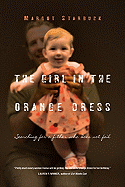 he Girl in an Orange Dress: Searching for a Father That Does Not Fail Margot Starbuck (IVP) $16.00 I continue to tell people they just must read this extraordinary book, this story of a young woman who was adopted, whose adopted dad(s) left her, and her subsequent struggle to discover if God as Father was a viable notion, whether He was really there, and if He truly cared. Is grace real, and does it matter? I simply loved this book about this good woman’s life which is both poignant and full of pathos and yet delightful to read and laugh-out-loud funny at times. This is just a fantastic memoir, a great read, and loaded with very important deep-down insight. We love this writer, and, will say it again: you must read this book! And then read her others, too.
he Girl in an Orange Dress: Searching for a Father That Does Not Fail Margot Starbuck (IVP) $16.00 I continue to tell people they just must read this extraordinary book, this story of a young woman who was adopted, whose adopted dad(s) left her, and her subsequent struggle to discover if God as Father was a viable notion, whether He was really there, and if He truly cared. Is grace real, and does it matter? I simply loved this book about this good woman’s life which is both poignant and full of pathos and yet delightful to read and laugh-out-loud funny at times. This is just a fantastic memoir, a great read, and loaded with very important deep-down insight. We love this writer, and, will say it again: you must read this book! And then read her others, too.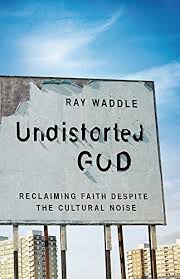 ndistorted God: Reclaiming Faith Despite the Cultural Noise Ray
ndistorted God: Reclaiming Faith Despite the Cultural Noise Ray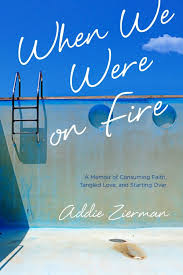 hen We Were on Fire: A Memoir of Consuming Faith, Tangled Love, and
hen We Were on Fire: A Memoir of Consuming Faith, Tangled Love, and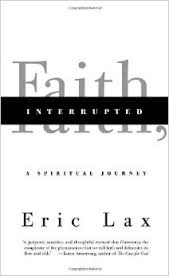 aith, Interrupted: A Spiritual Journey Eric Lax (Knopf) $26.00 What a clear, interesting telling of the tale of a boy growing up in the household of an earnest, happy, and thoughtfully traditional Episcopal priest who grew into doubt and confusion in mid-life after a boyhood of piety and conviction. Lax’s description of being a pastor’s kid is remarkable, and his eventual shift — having a “foot in both cultures, dubious as plain believers, equally dubious as plain unbelievers” is how Jack Miles put it in a glowing review– is told with eloquent honesty. This quiet spiritual autobiography is, for him, a story of discovery (and, perhaps, rediscovery.) Lax has written other books, including best-selling study of Woody Allen, who makes an appearance or two in this story. (As does, by the way, the Archbishop of Canterbury, and a host of other figures important within the Anglican communion of those years.) Is it natural for faith to flow and ebb? This is a fascinating story which will appeal especially, I think, to baby boomers raised in, or interested in, high church Protestantism.
aith, Interrupted: A Spiritual Journey Eric Lax (Knopf) $26.00 What a clear, interesting telling of the tale of a boy growing up in the household of an earnest, happy, and thoughtfully traditional Episcopal priest who grew into doubt and confusion in mid-life after a boyhood of piety and conviction. Lax’s description of being a pastor’s kid is remarkable, and his eventual shift — having a “foot in both cultures, dubious as plain believers, equally dubious as plain unbelievers” is how Jack Miles put it in a glowing review– is told with eloquent honesty. This quiet spiritual autobiography is, for him, a story of discovery (and, perhaps, rediscovery.) Lax has written other books, including best-selling study of Woody Allen, who makes an appearance or two in this story. (As does, by the way, the Archbishop of Canterbury, and a host of other figures important within the Anglican communion of those years.) Is it natural for faith to flow and ebb? This is a fascinating story which will appeal especially, I think, to baby boomers raised in, or interested in, high church Protestantism. 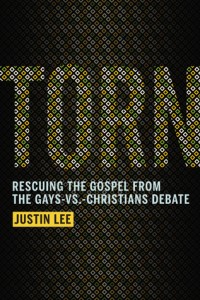 orn: Rescuing the Gospel from the Gays-vs.-Christians Debate Justin
orn: Rescuing the Gospel from the Gays-vs.-Christians Debate Justin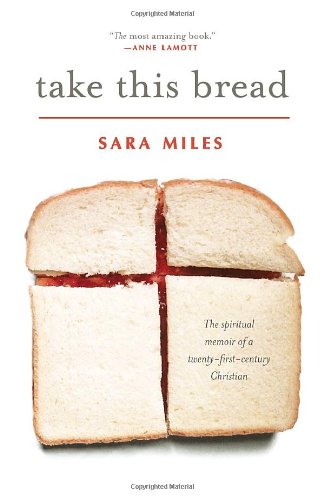 ke This Bread: A Radical Conversion Sarah Miles (Ballantine) $16.00 I
ke This Bread: A Radical Conversion Sarah Miles (Ballantine) $16.00 I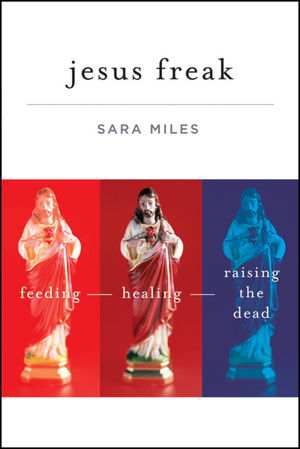 I came late to Christianity,” writes Sarah Miles,” knocked
I came late to Christianity,” writes Sarah Miles,” knocked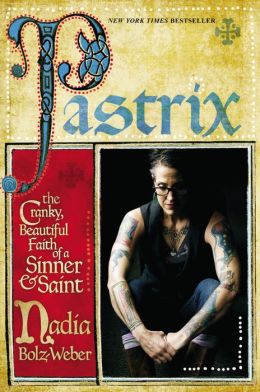 astrix: The Cranky, Beautiful Faith of a Sinner & Saint Nadia
astrix: The Cranky, Beautiful Faith of a Sinner & Saint Nadia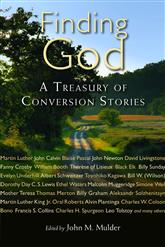 inding God: A Treasury of Conversion Stories edited by John
inding God: A Treasury of Conversion Stories edited by John
























 ood Words and Good Works: A Theology of the Whole Gospel Ronald J. Sider (Baker) $20.00 I often remark how very important this book is, and how carefully Ron explores, compares, contrasts, differentiates and wisely and helpfully studies different models and views of evangelism. He gives a wholistic Biblical vision of what evangelism is and isn’t, and it is as important for mainline denominational “social gospel” folk as it is for evangelical “evangelistic” folk. As you may know, Ron has been a leader of evangelical social action, calling for radical lifestyles of generous justice, service to the poor, peacemaking and the like. And yet, he continues to be interested in his earliest passion — to be an apologist and defend the credibility of faith among the intellectuals.
ood Words and Good Works: A Theology of the Whole Gospel Ronald J. Sider (Baker) $20.00 I often remark how very important this book is, and how carefully Ron explores, compares, contrasts, differentiates and wisely and helpfully studies different models and views of evangelism. He gives a wholistic Biblical vision of what evangelism is and isn’t, and it is as important for mainline denominational “social gospel” folk as it is for evangelical “evangelistic” folk. As you may know, Ron has been a leader of evangelical social action, calling for radical lifestyles of generous justice, service to the poor, peacemaking and the like. And yet, he continues to be interested in his earliest passion — to be an apologist and defend the credibility of faith among the intellectuals. 












 he Sacredness of Questioning Everything David Dark (Zondervan) $15.99 One might think that inviting people to this ancient, sacred task of questioning simple truths, investigating matters, upsetting the apple carts, deconstructing, if you will, might be disruptive to evangelical faith. Maybe so. But this is so essential for healthy human flourishing and personal development (and such an accepted part of postmodern culture) that to fear (or dismiss with snarky comments) the good heart of this good project, is to miss extraordinary possibilities of engaging with seekers, skeptics, those who wonder (and those who wander.) David Dark is a very, very, creative thinker, sometimes nearly sensational — he writes almost wildly, at times, and knows so much about so much (including pop culture; I hope you know his wonderful book Everyday Apocalypse: The Sacred Revealed in Radiohead, The Simpsons, and Other Pop Culture Icons which, by the way, could be another helpful resource for postmodern evangelism.) Eugene Peterson has a wise endorsing blurb on the back of this; I do too, for that matter. Check it out.
he Sacredness of Questioning Everything David Dark (Zondervan) $15.99 One might think that inviting people to this ancient, sacred task of questioning simple truths, investigating matters, upsetting the apple carts, deconstructing, if you will, might be disruptive to evangelical faith. Maybe so. But this is so essential for healthy human flourishing and personal development (and such an accepted part of postmodern culture) that to fear (or dismiss with snarky comments) the good heart of this good project, is to miss extraordinary possibilities of engaging with seekers, skeptics, those who wonder (and those who wander.) David Dark is a very, very, creative thinker, sometimes nearly sensational — he writes almost wildly, at times, and knows so much about so much (including pop culture; I hope you know his wonderful book Everyday Apocalypse: The Sacred Revealed in Radiohead, The Simpsons, and Other Pop Culture Icons which, by the way, could be another helpful resource for postmodern evangelism.) Eugene Peterson has a wise endorsing blurb on the back of this; I do too, for that matter. Check it out.









